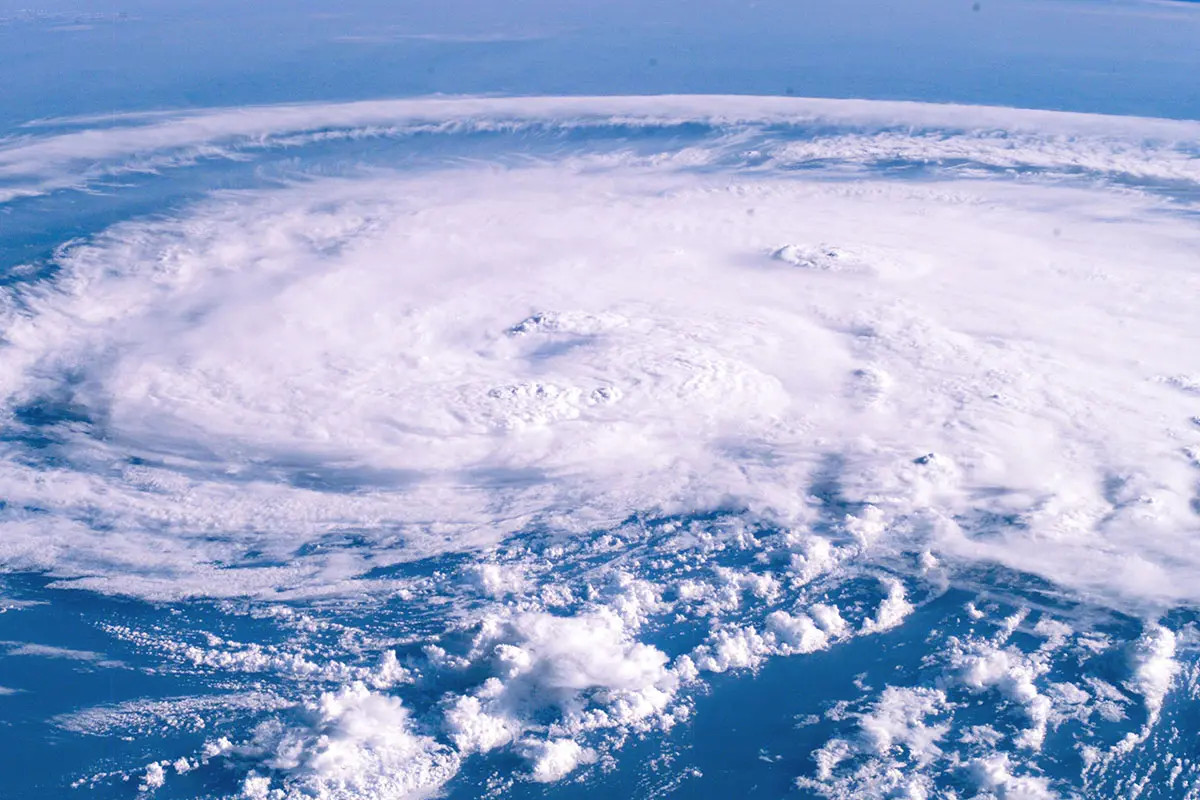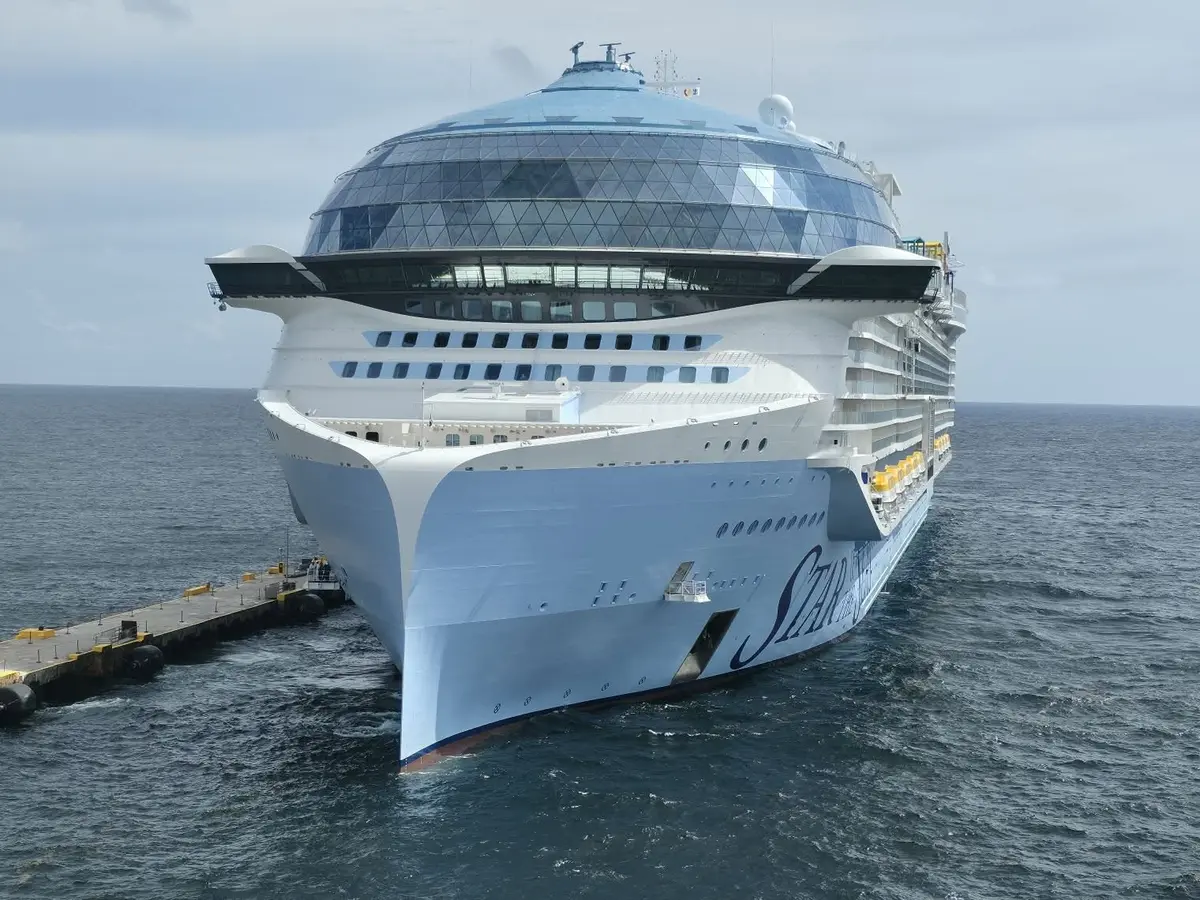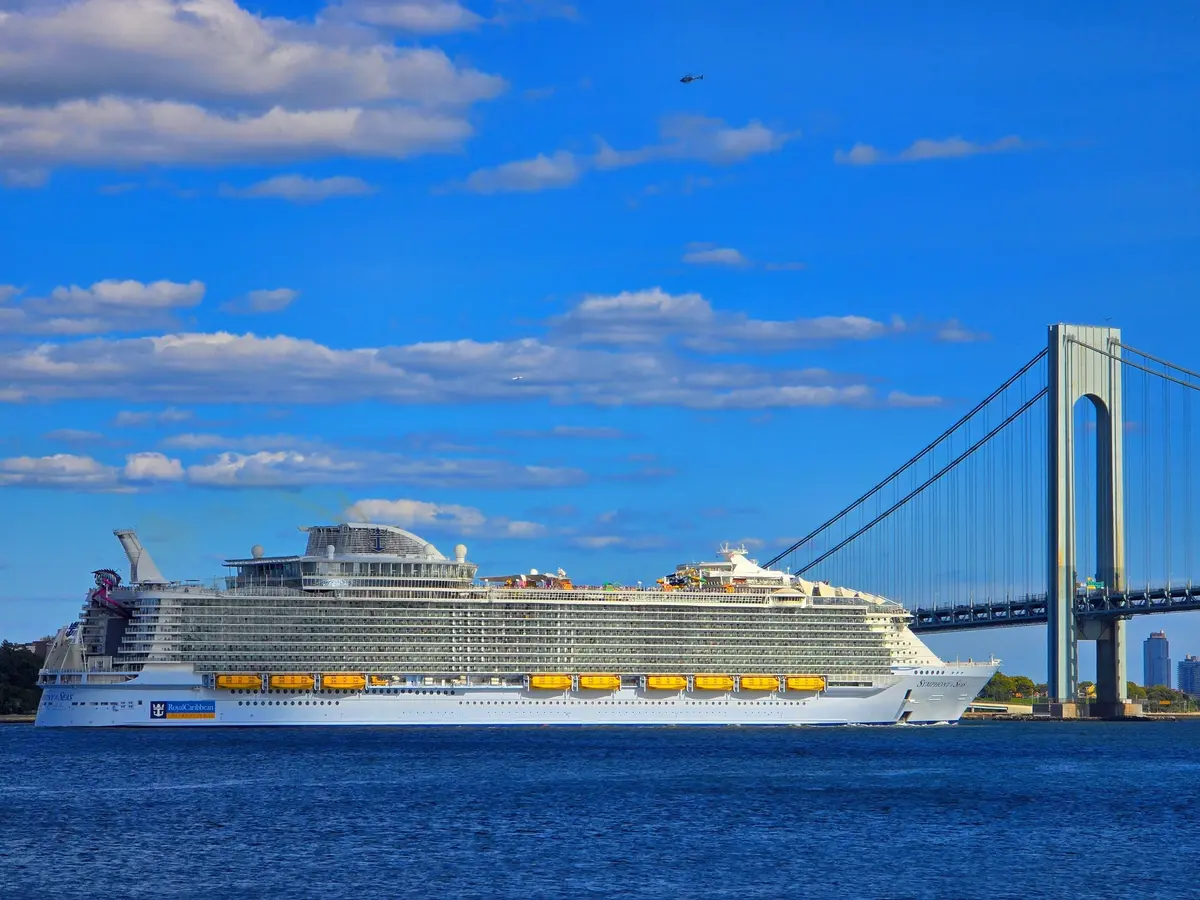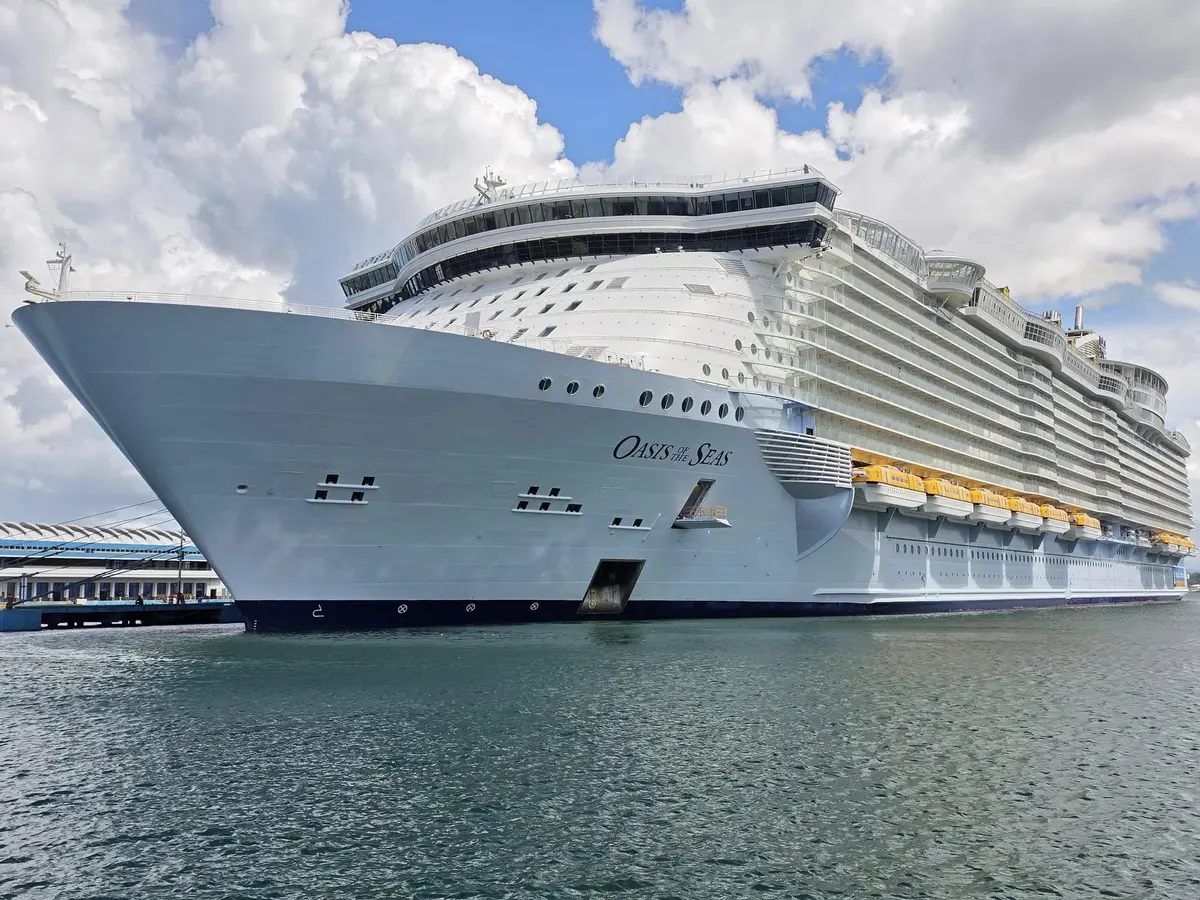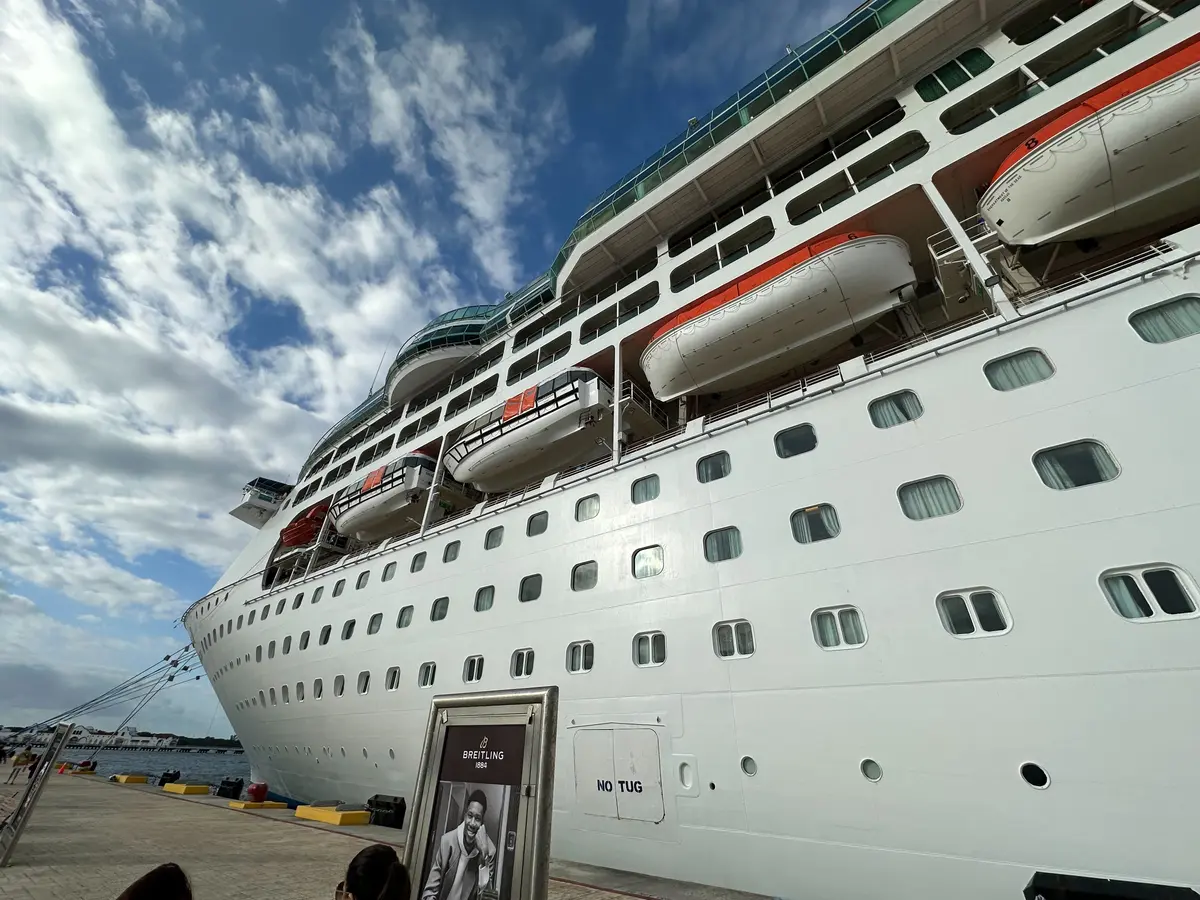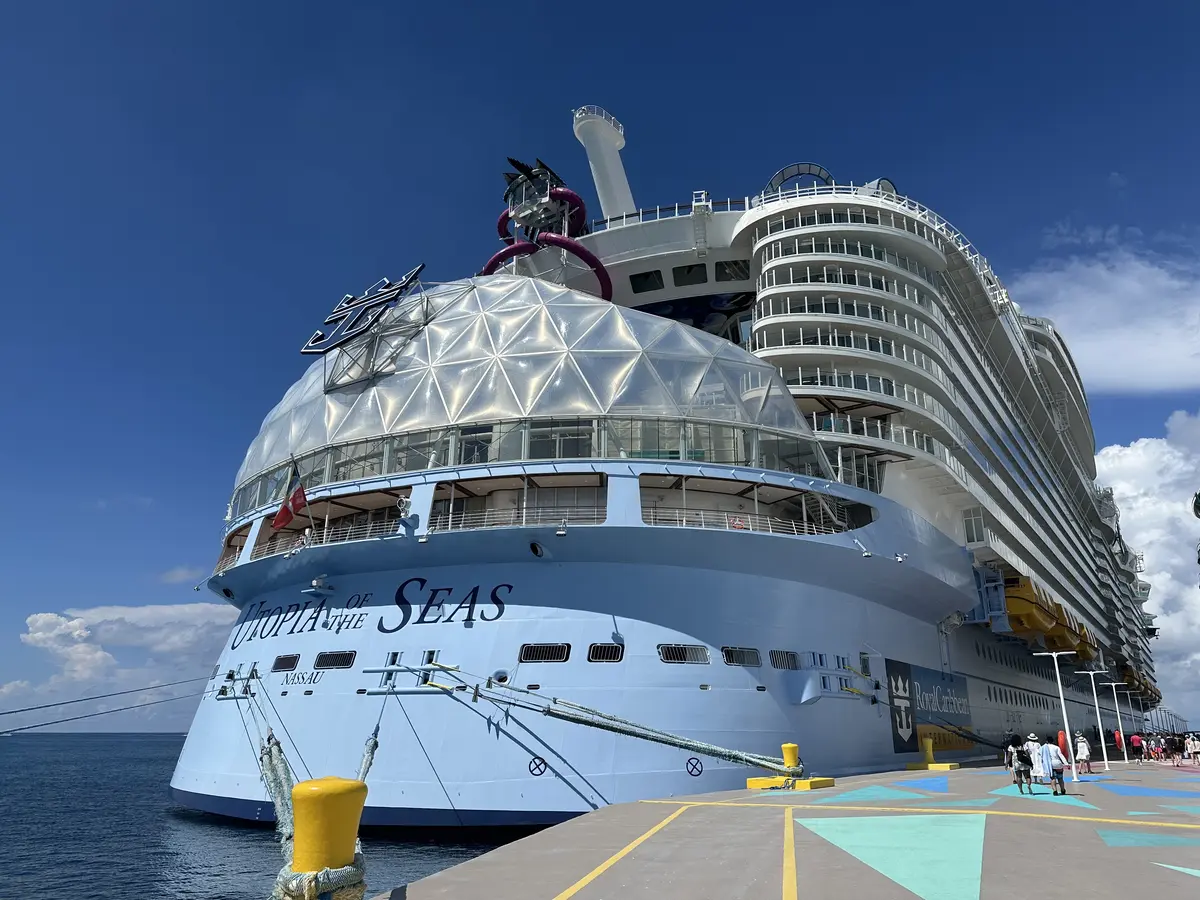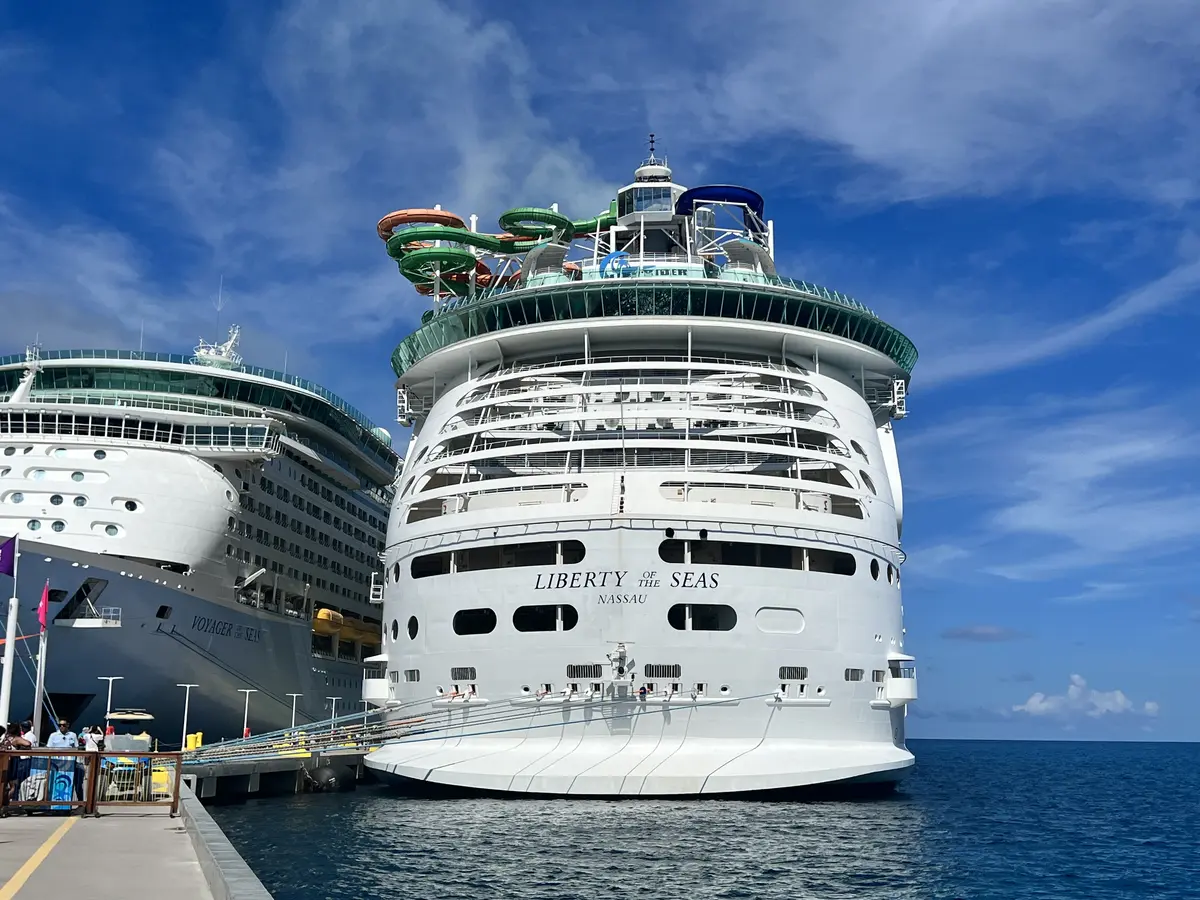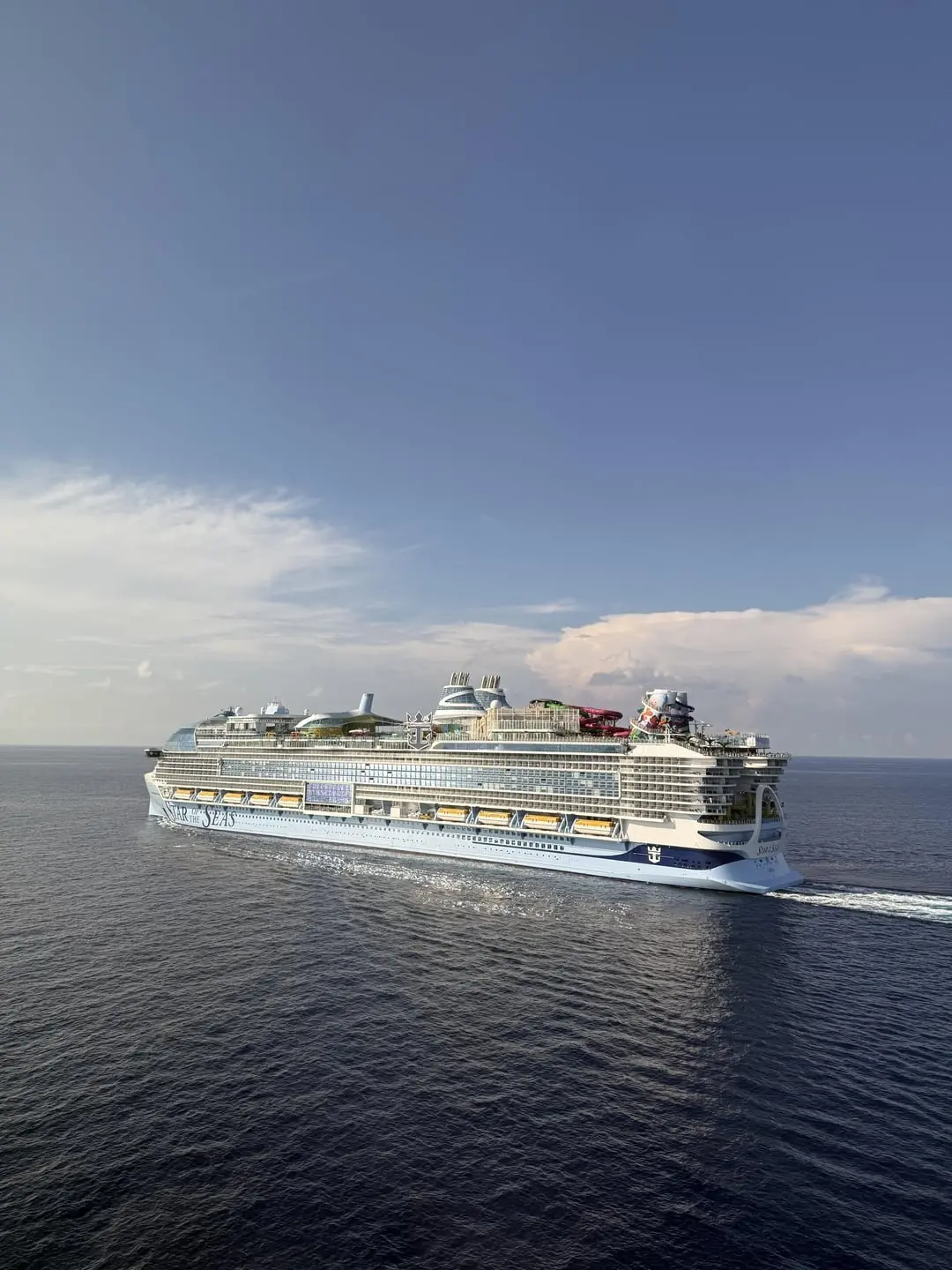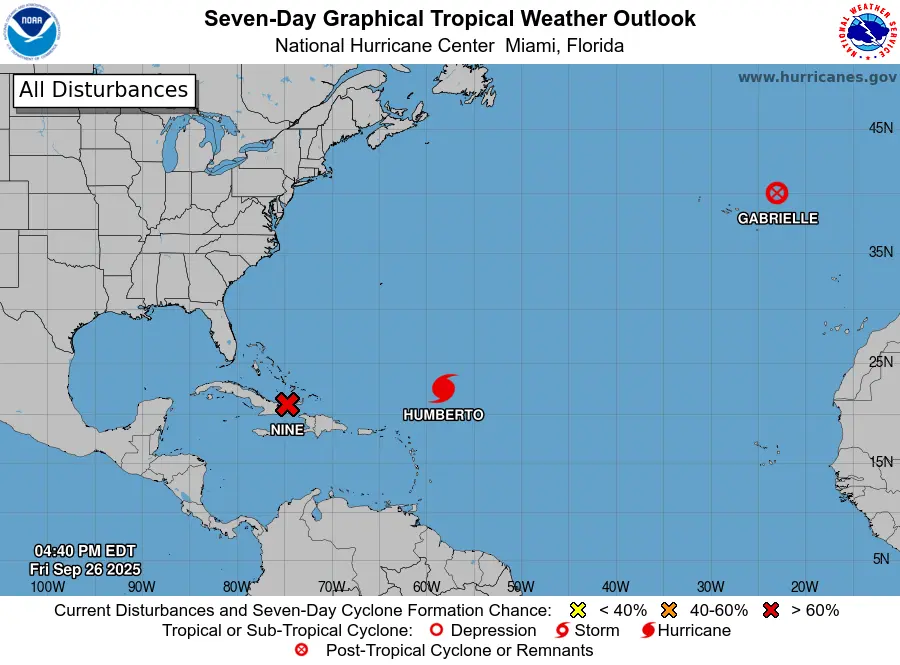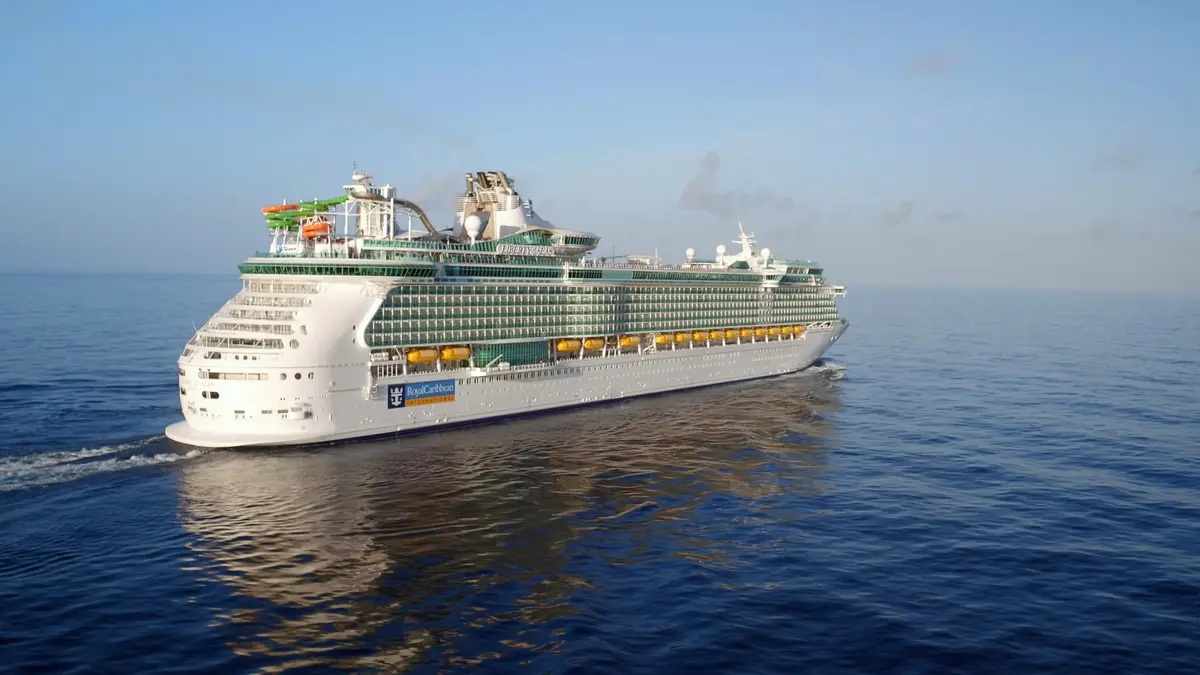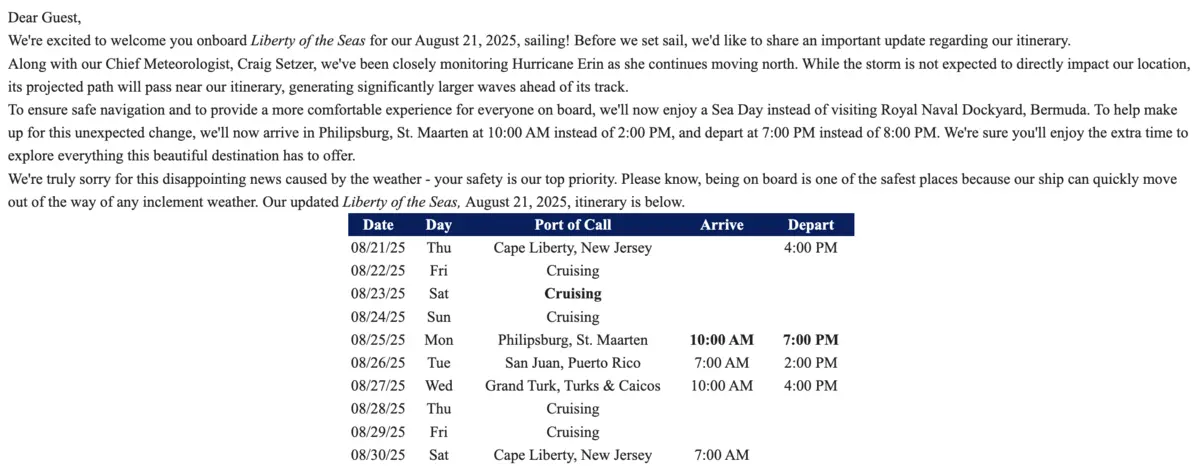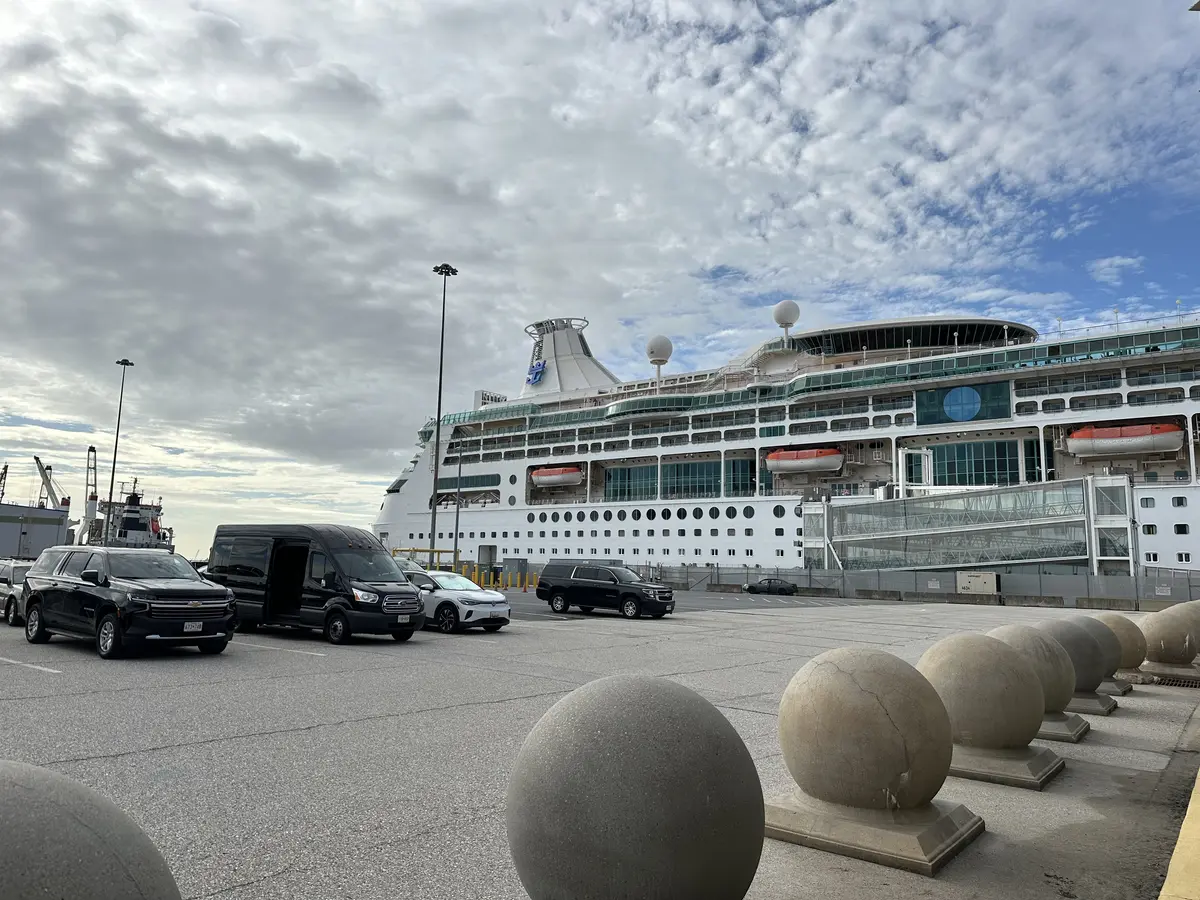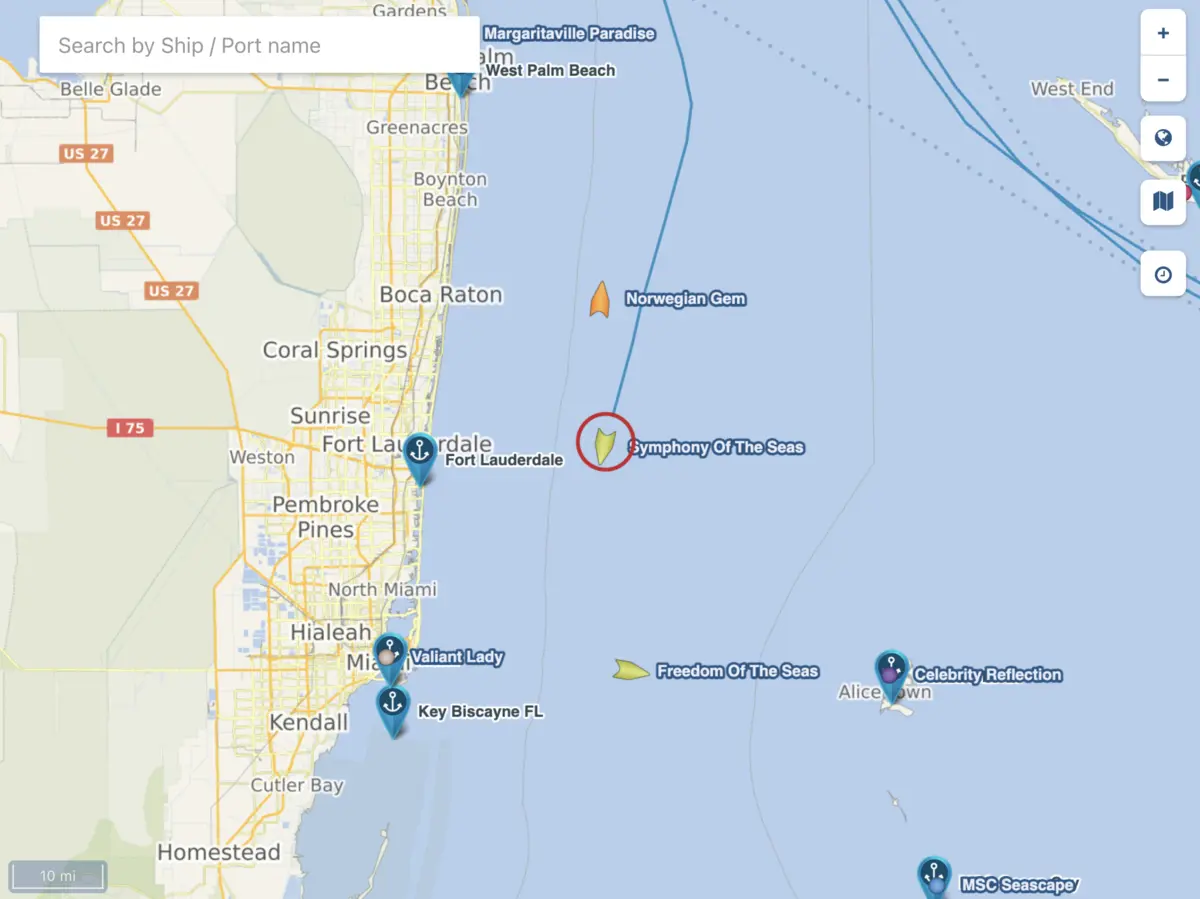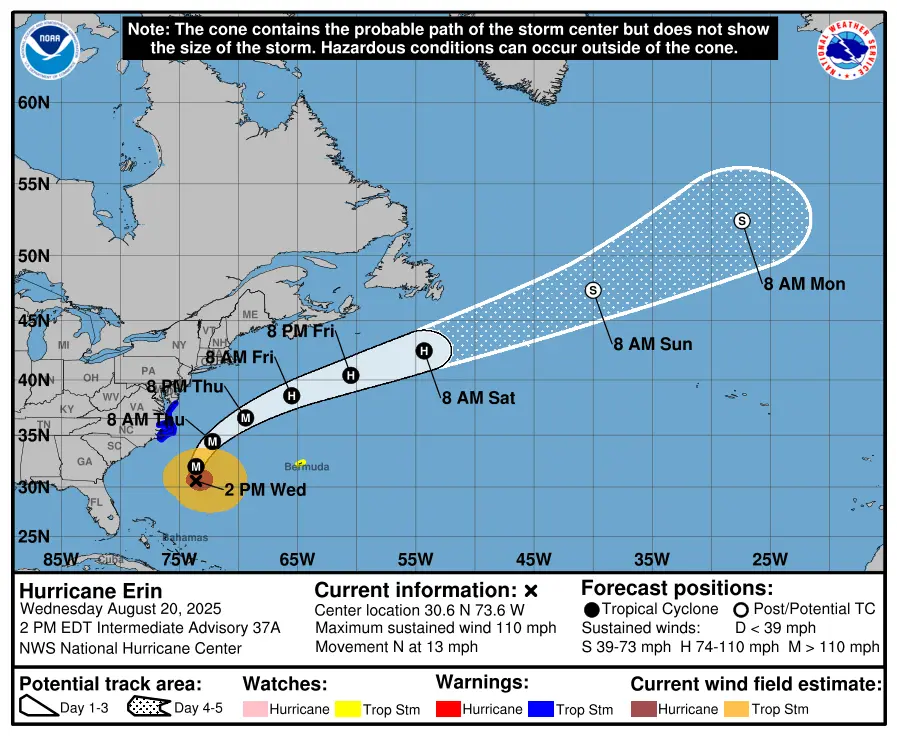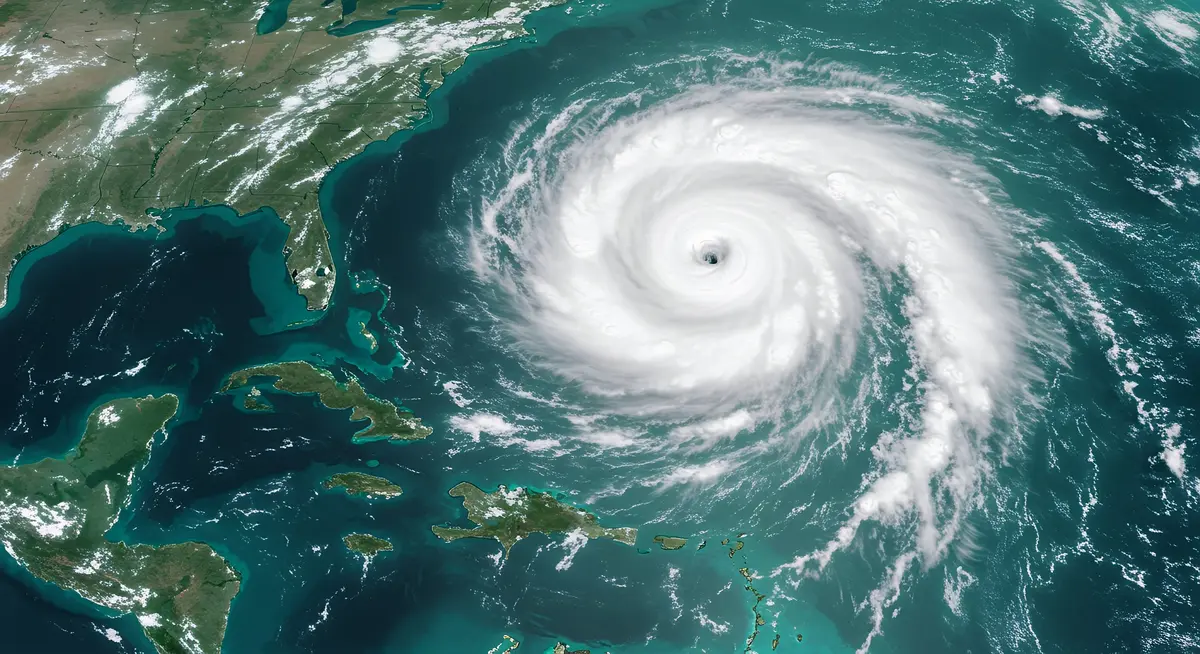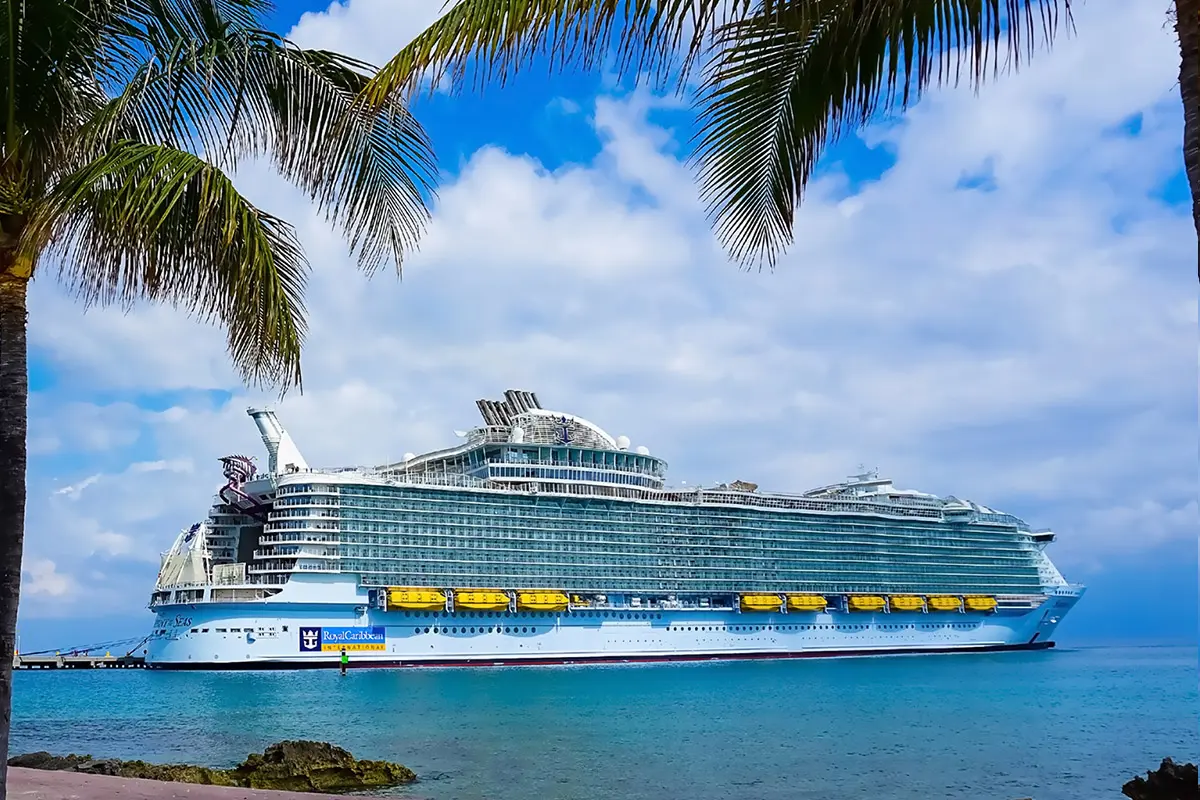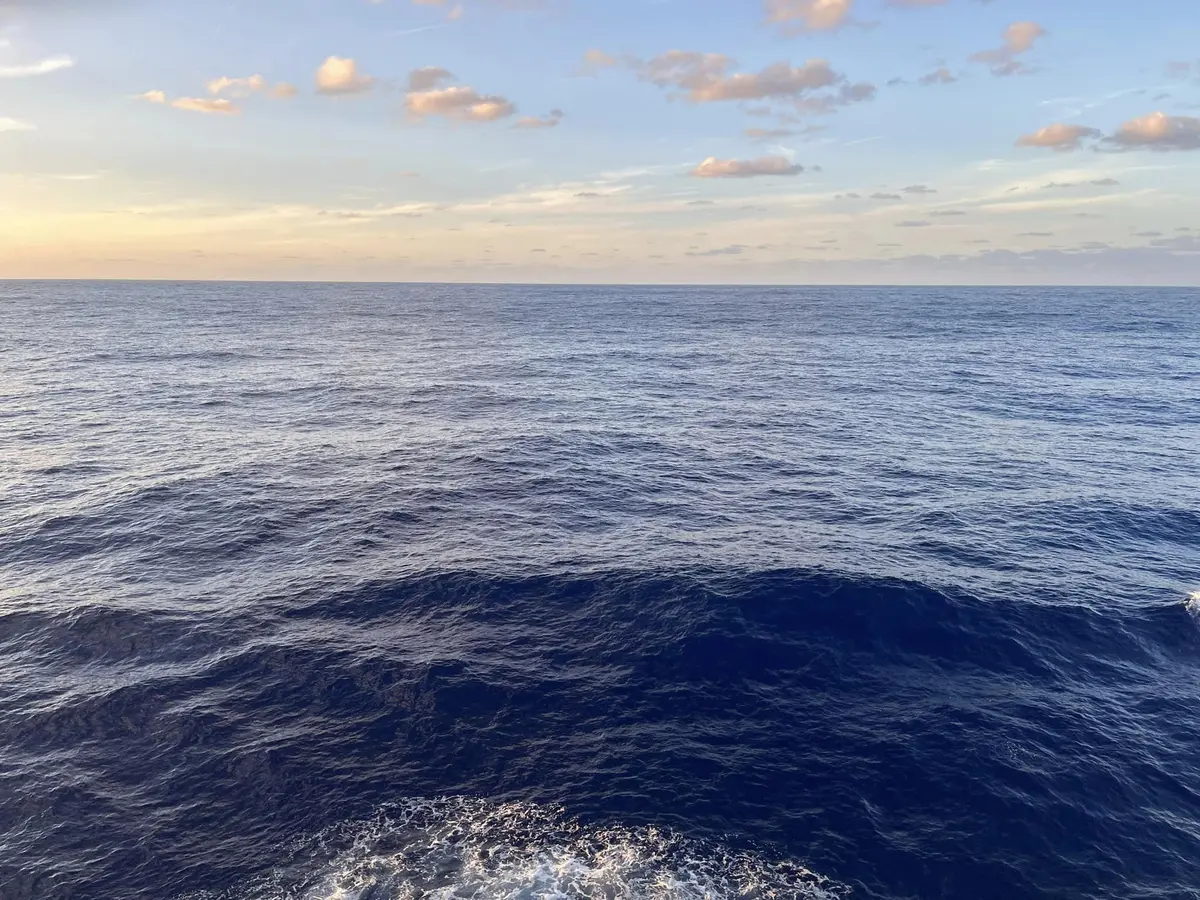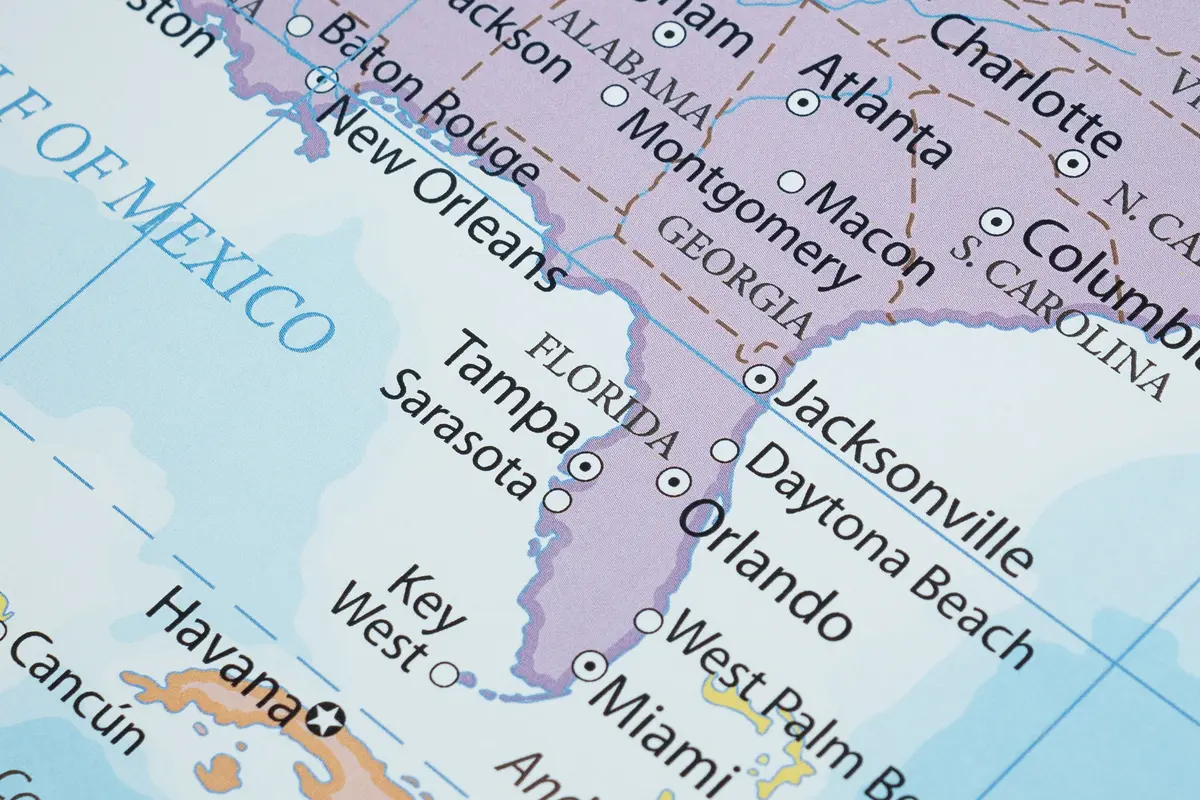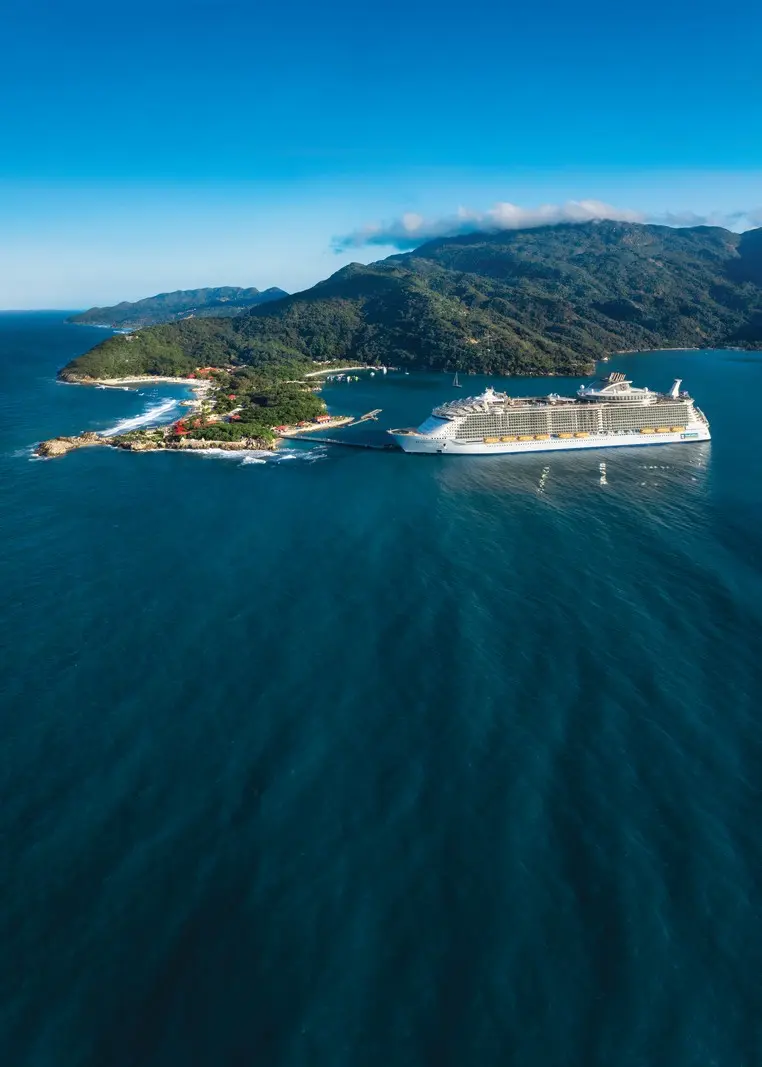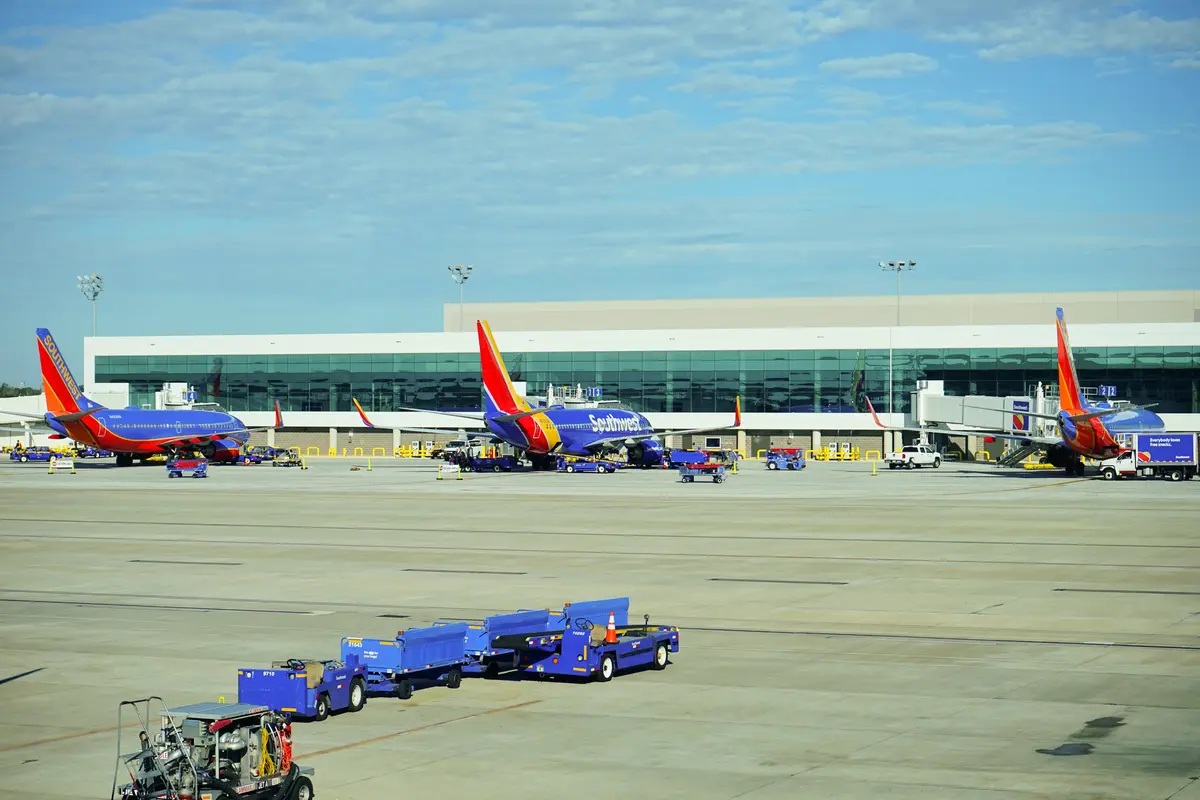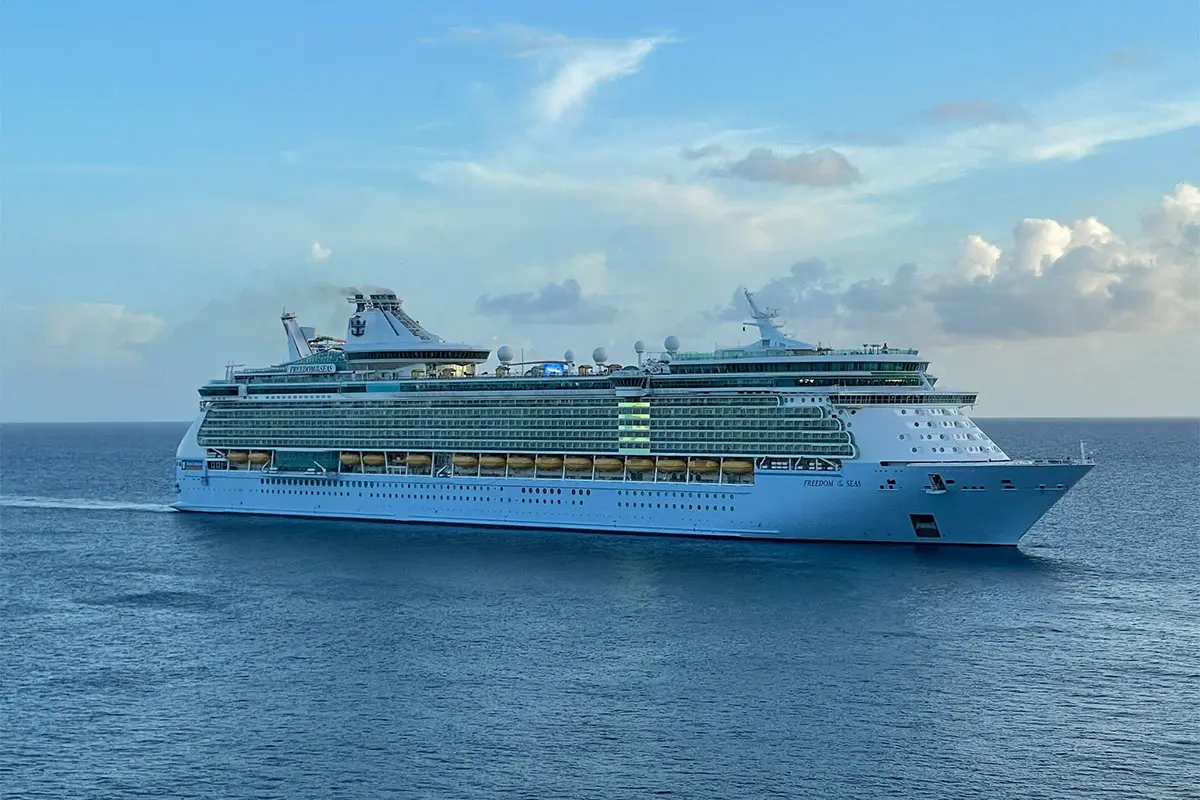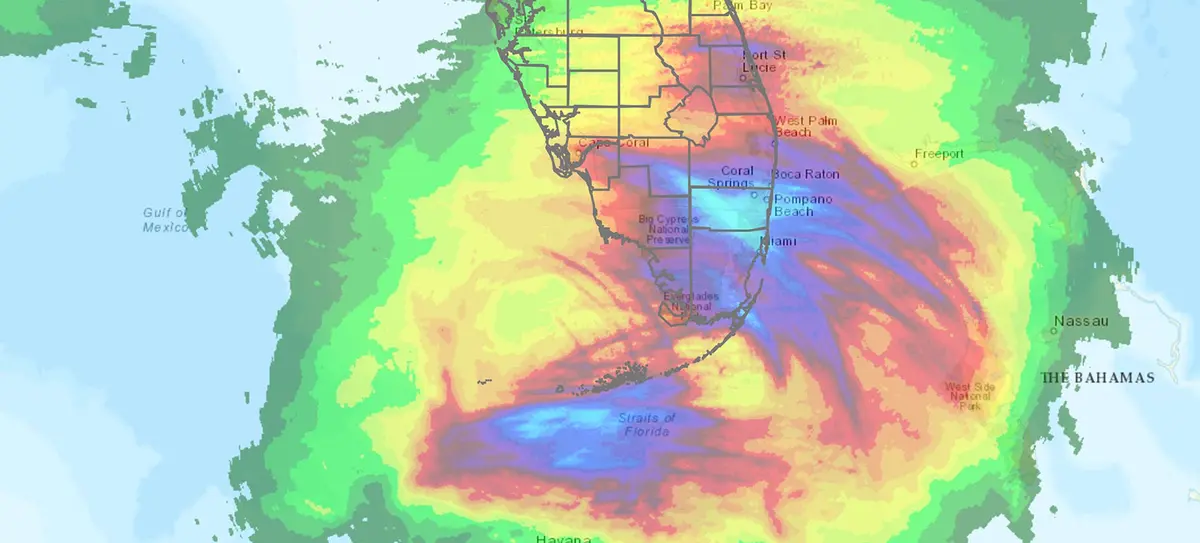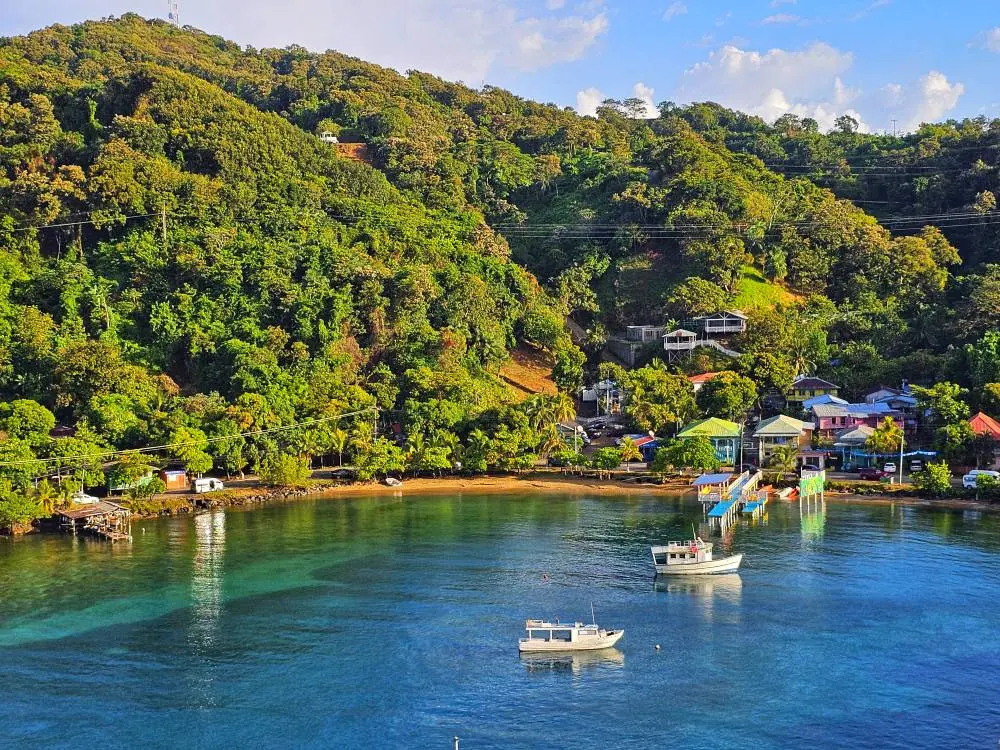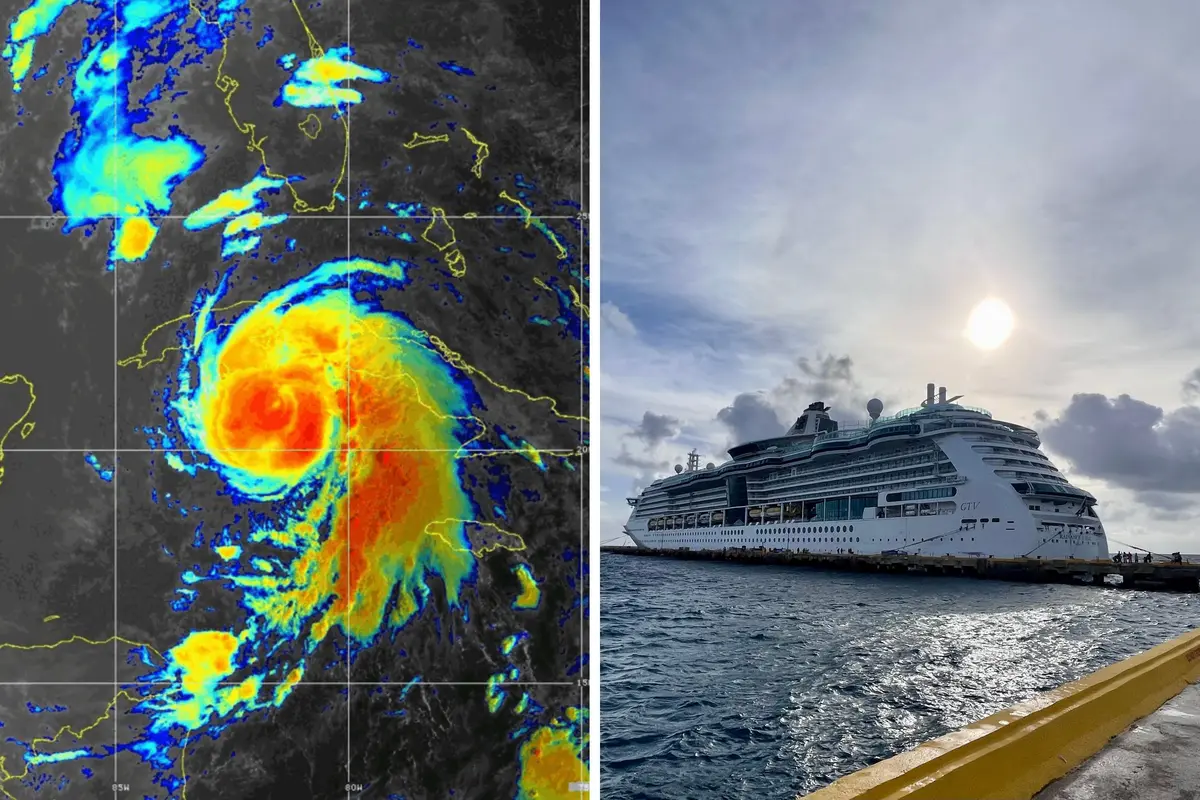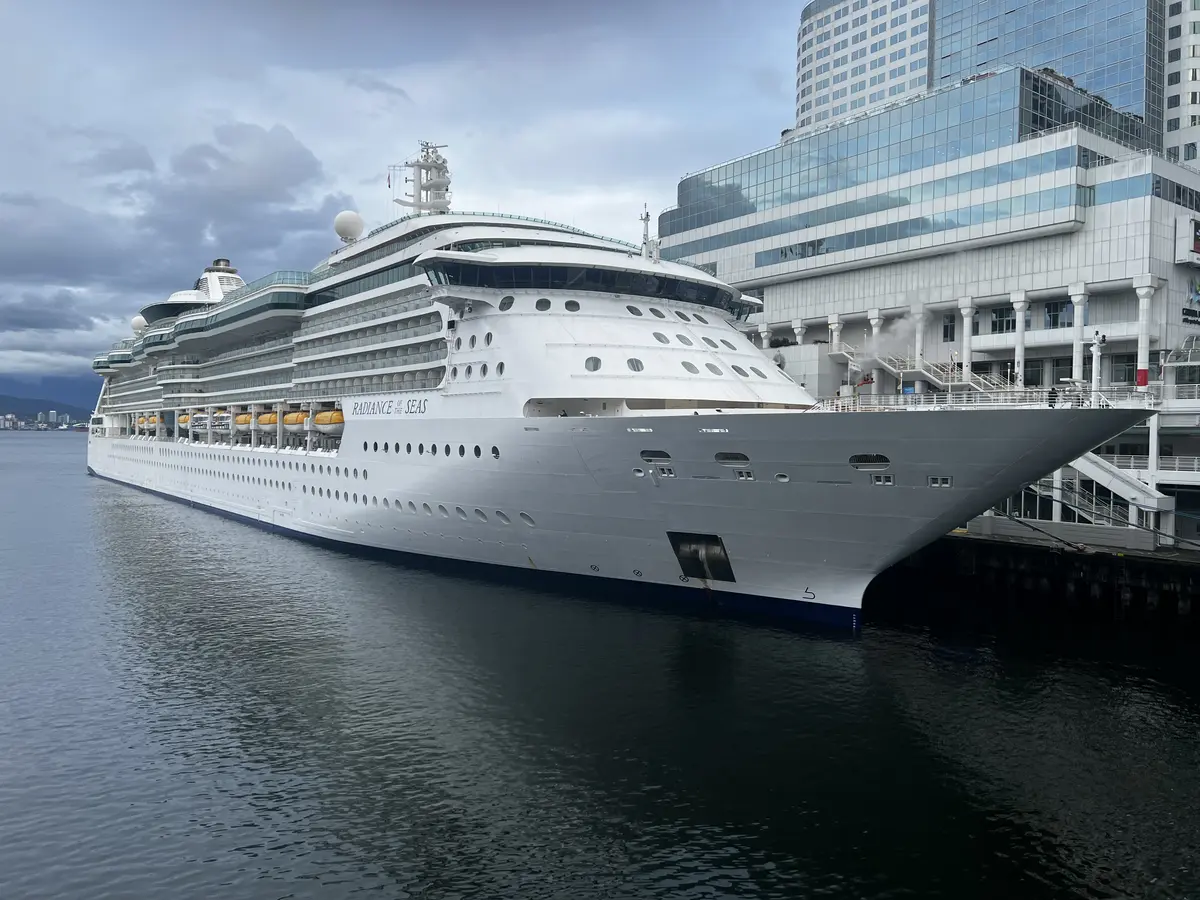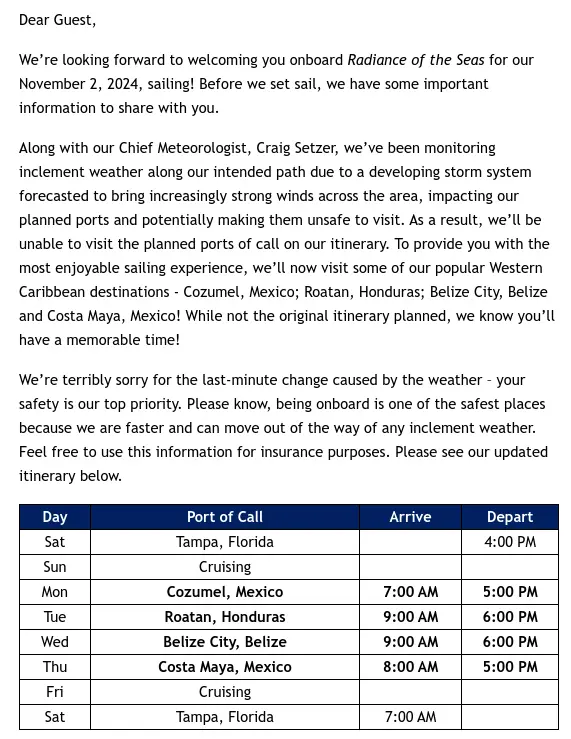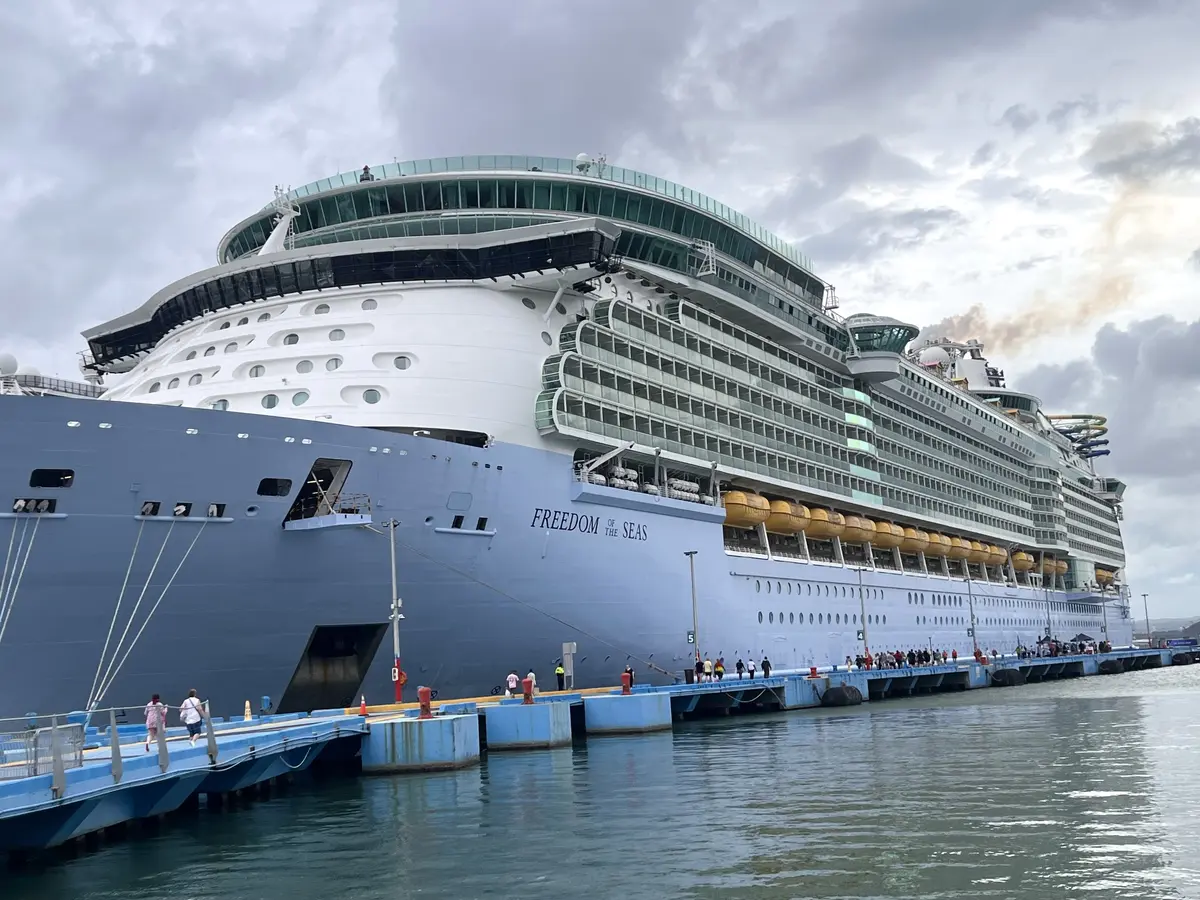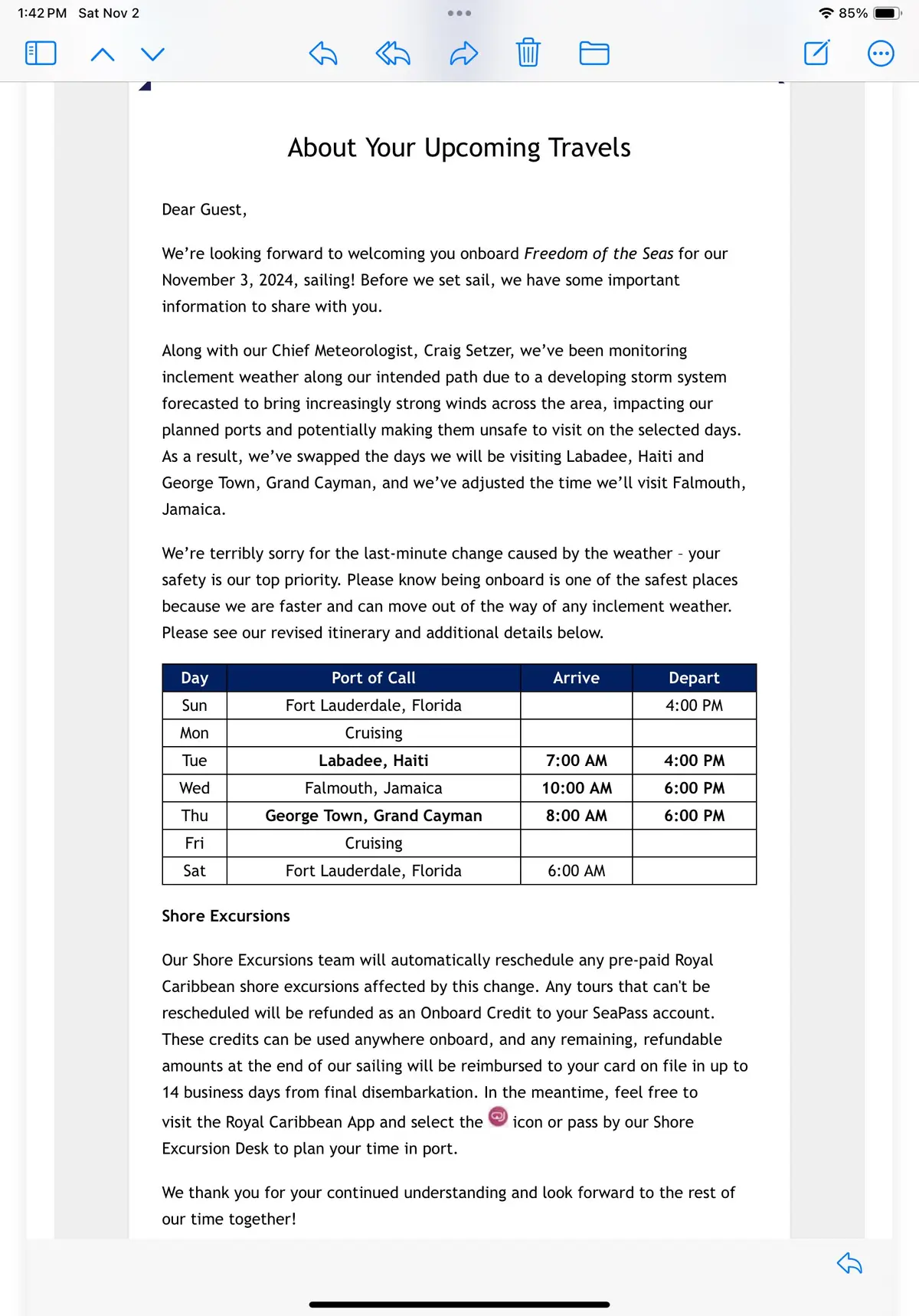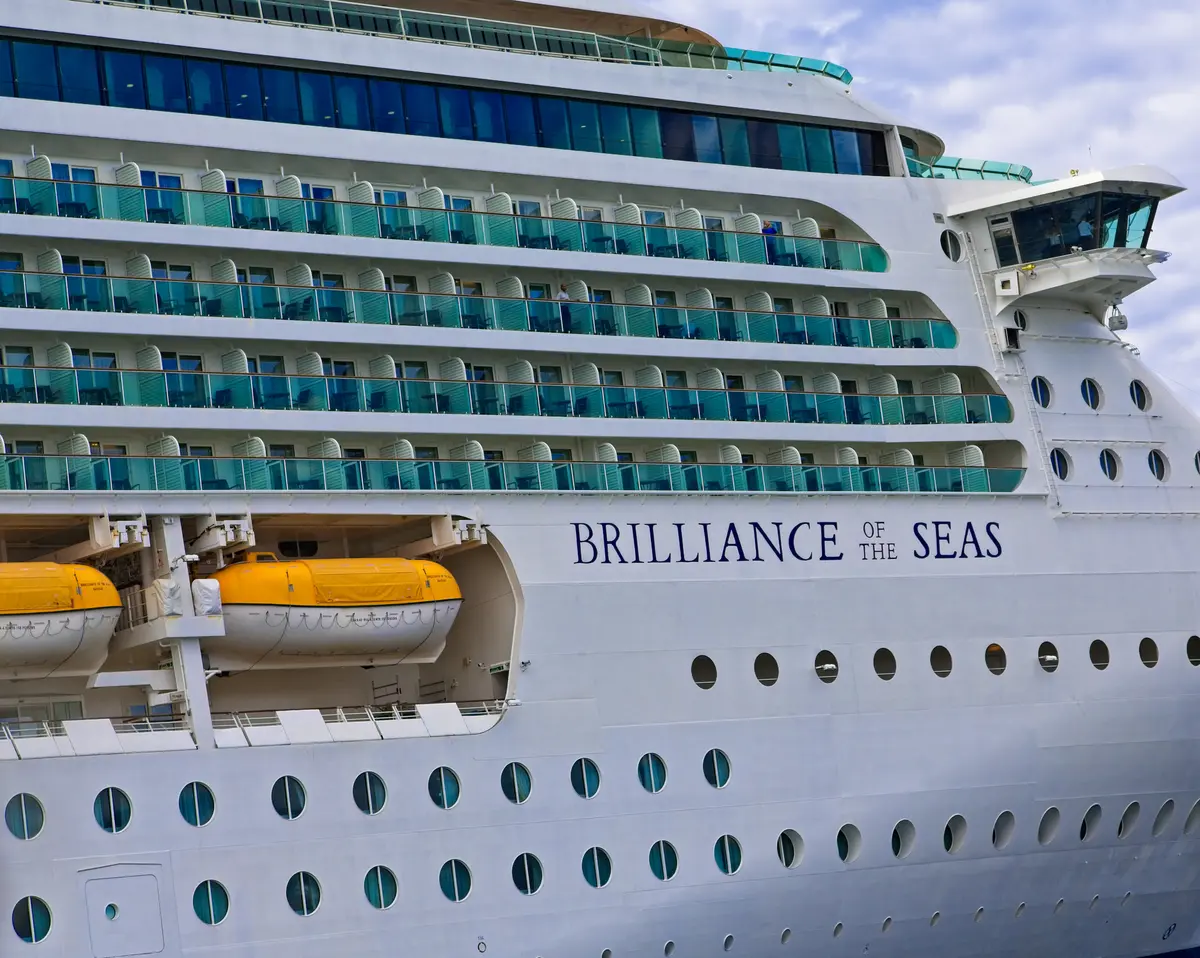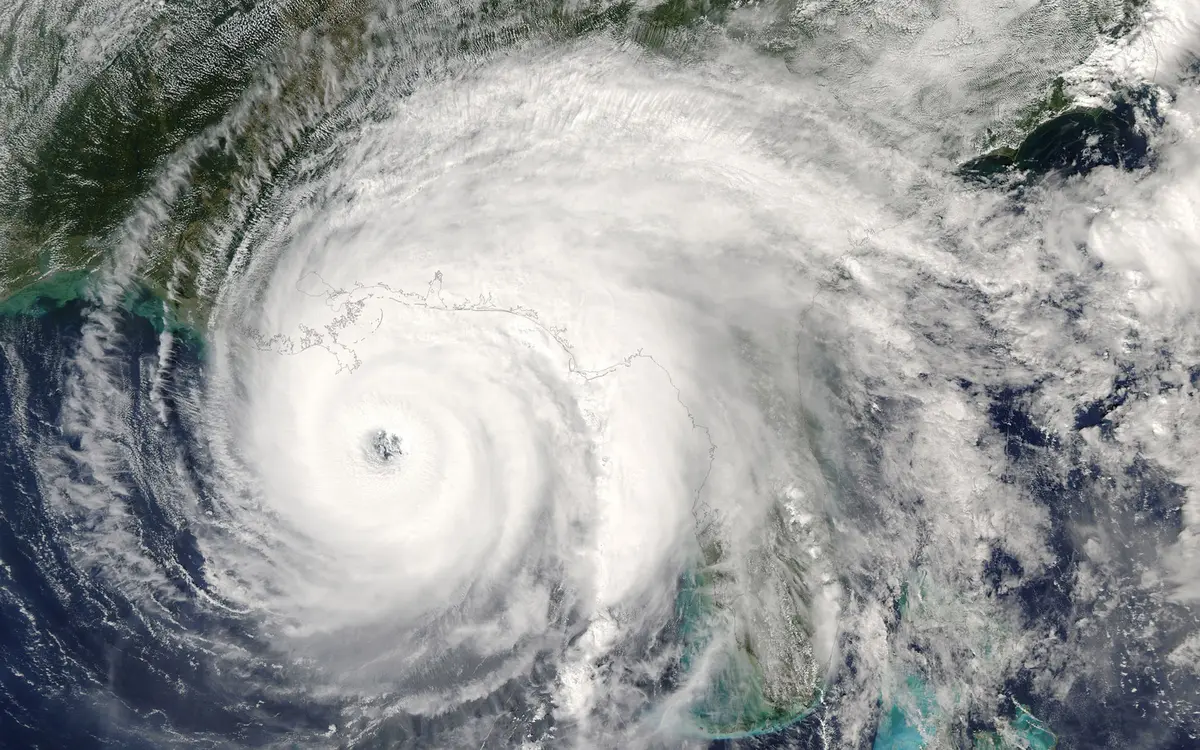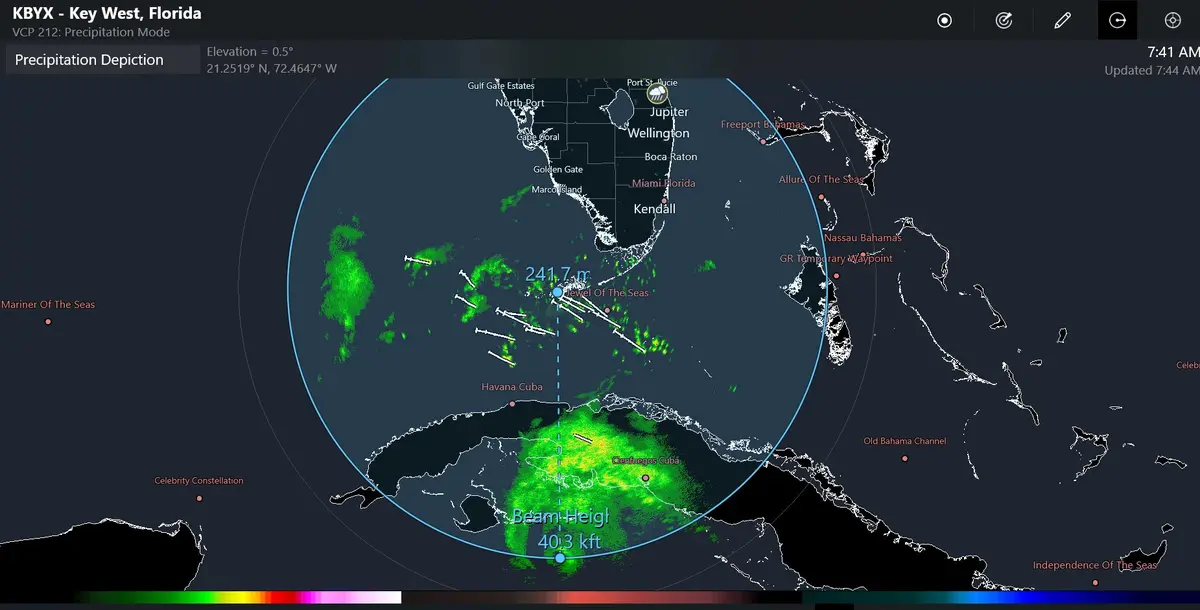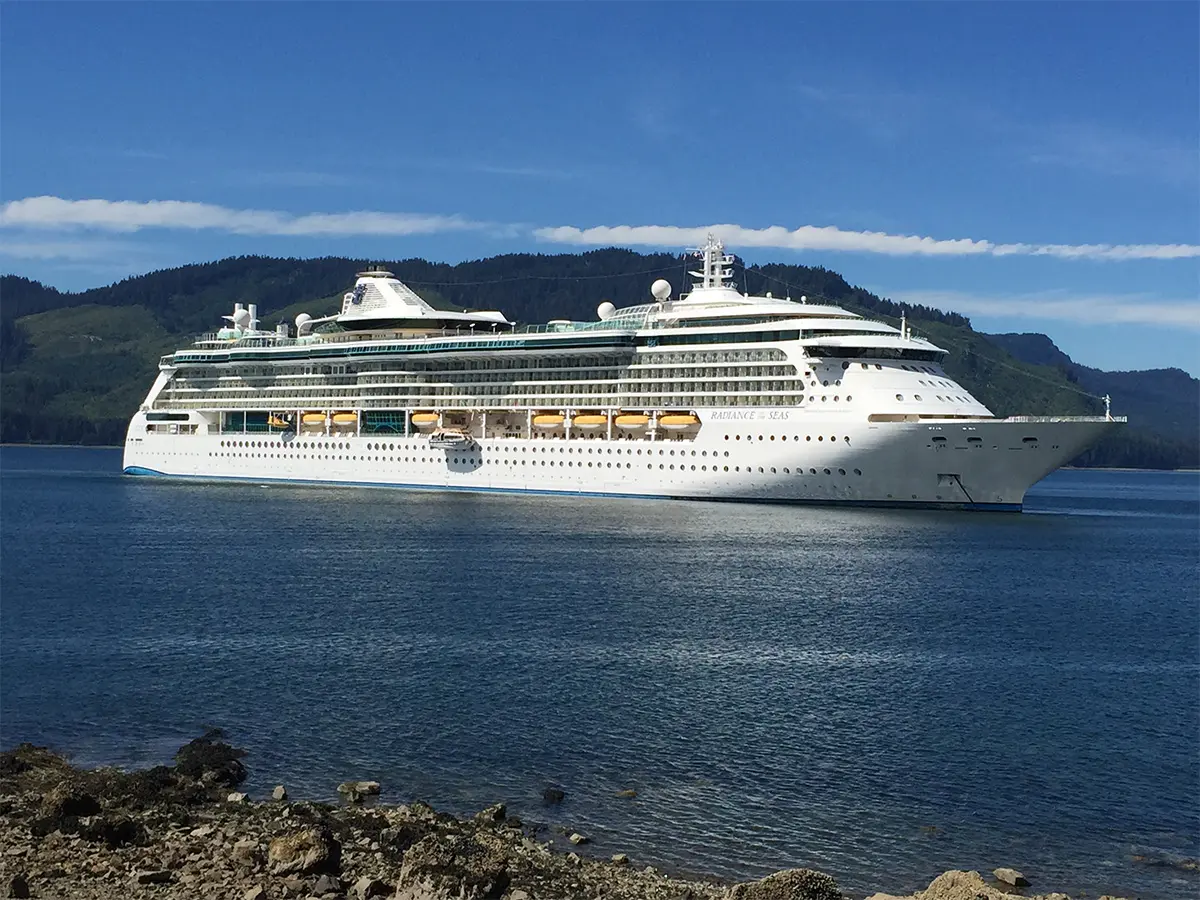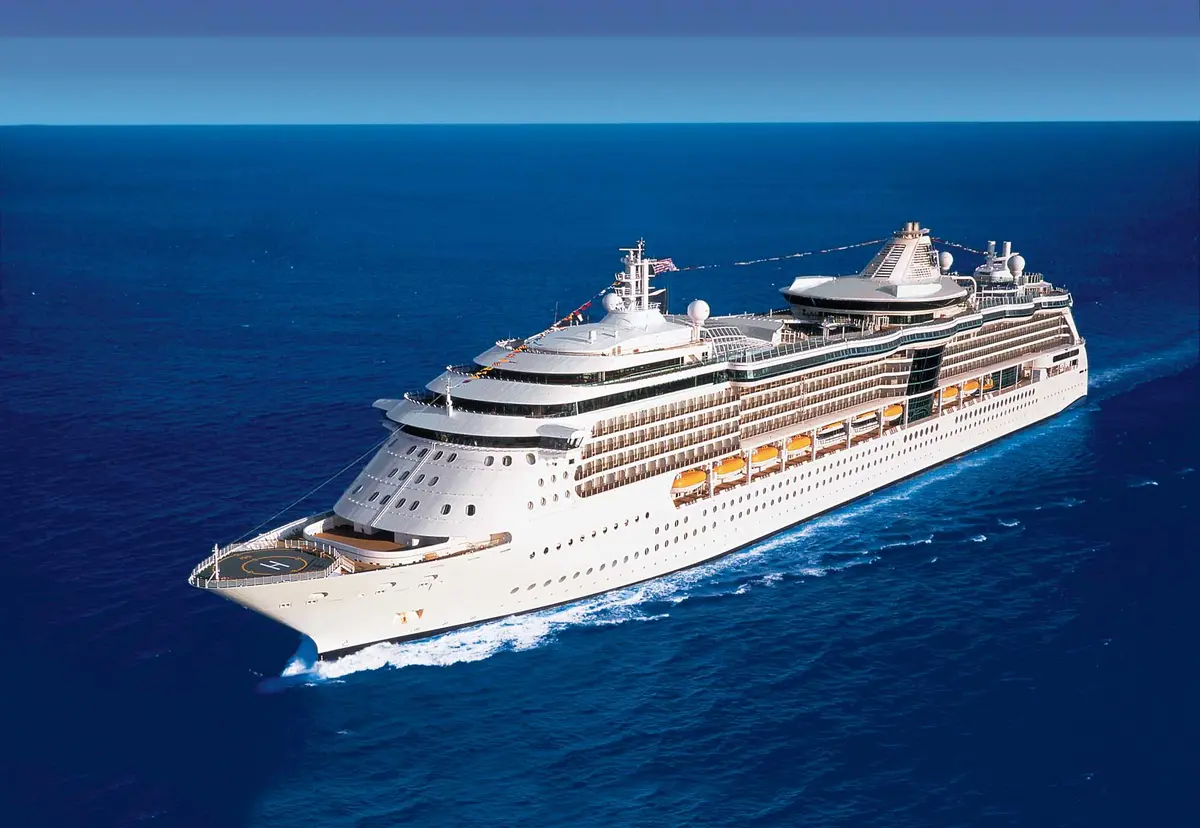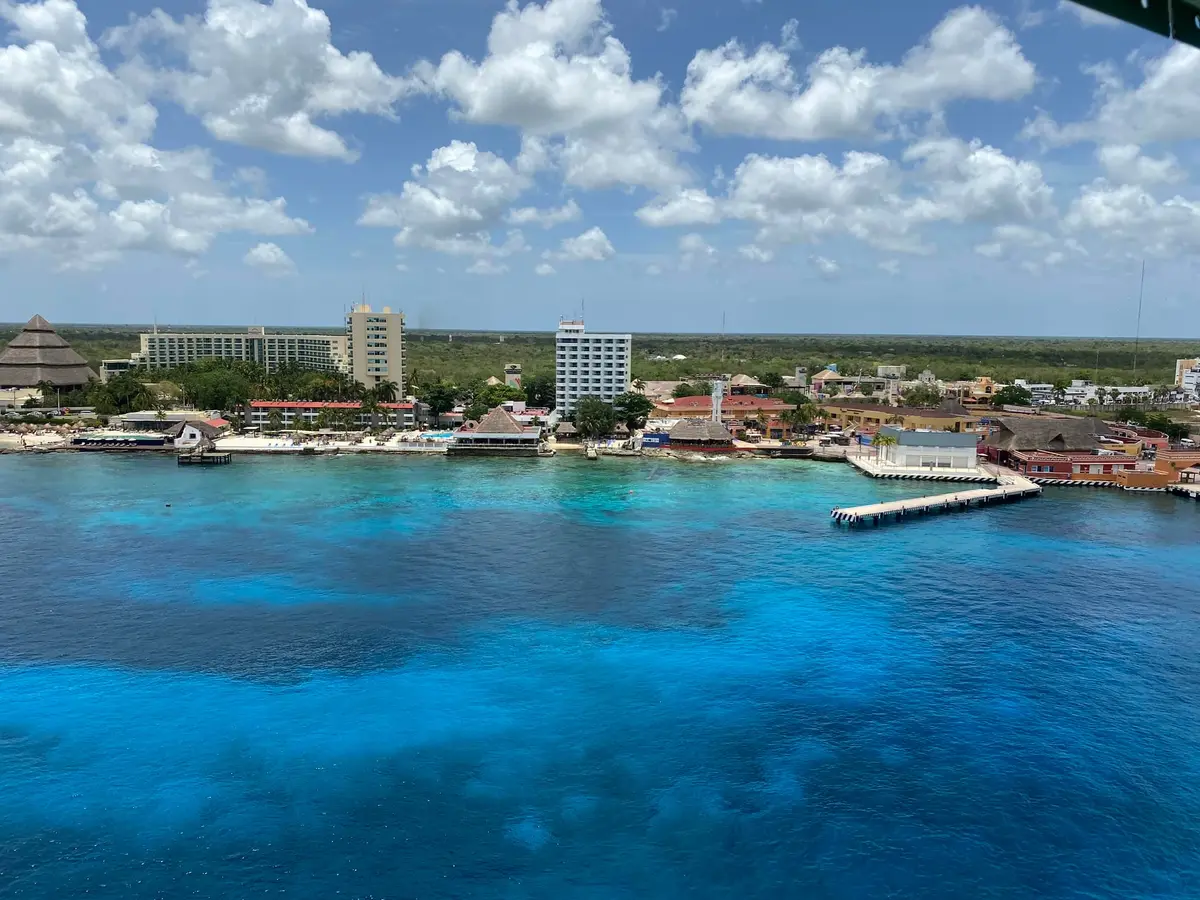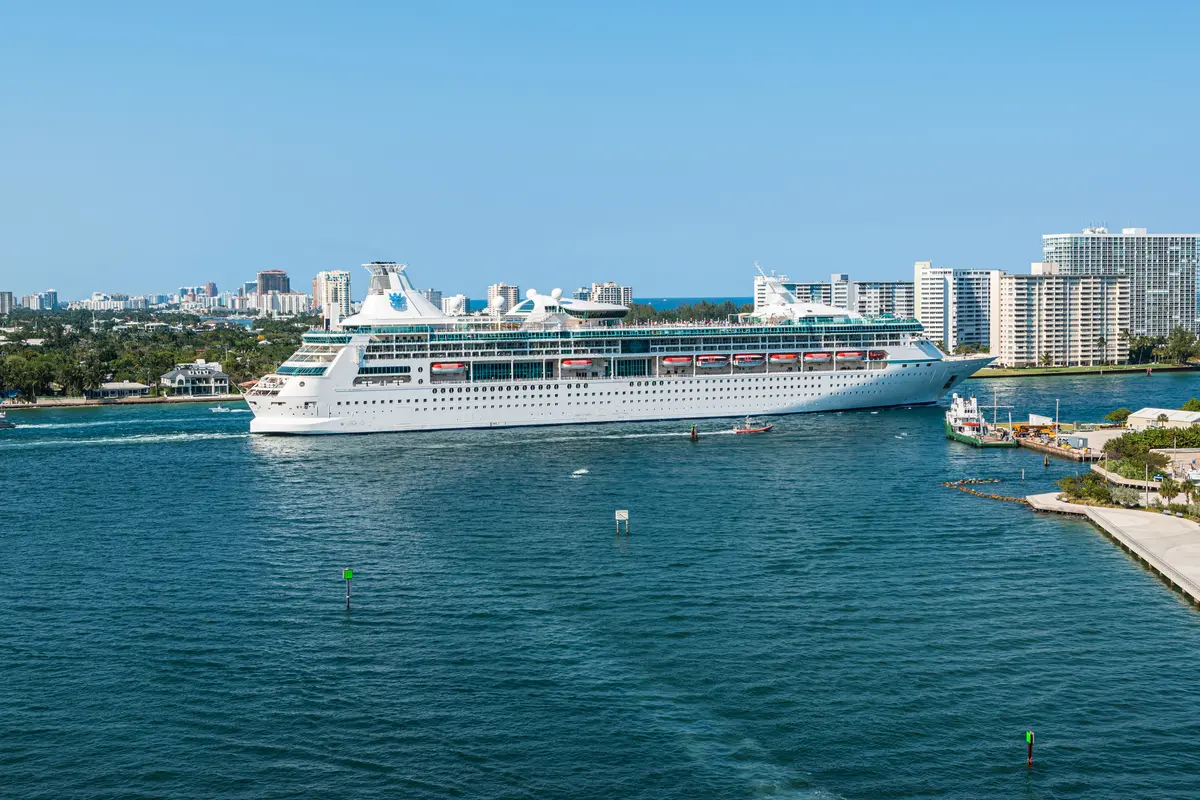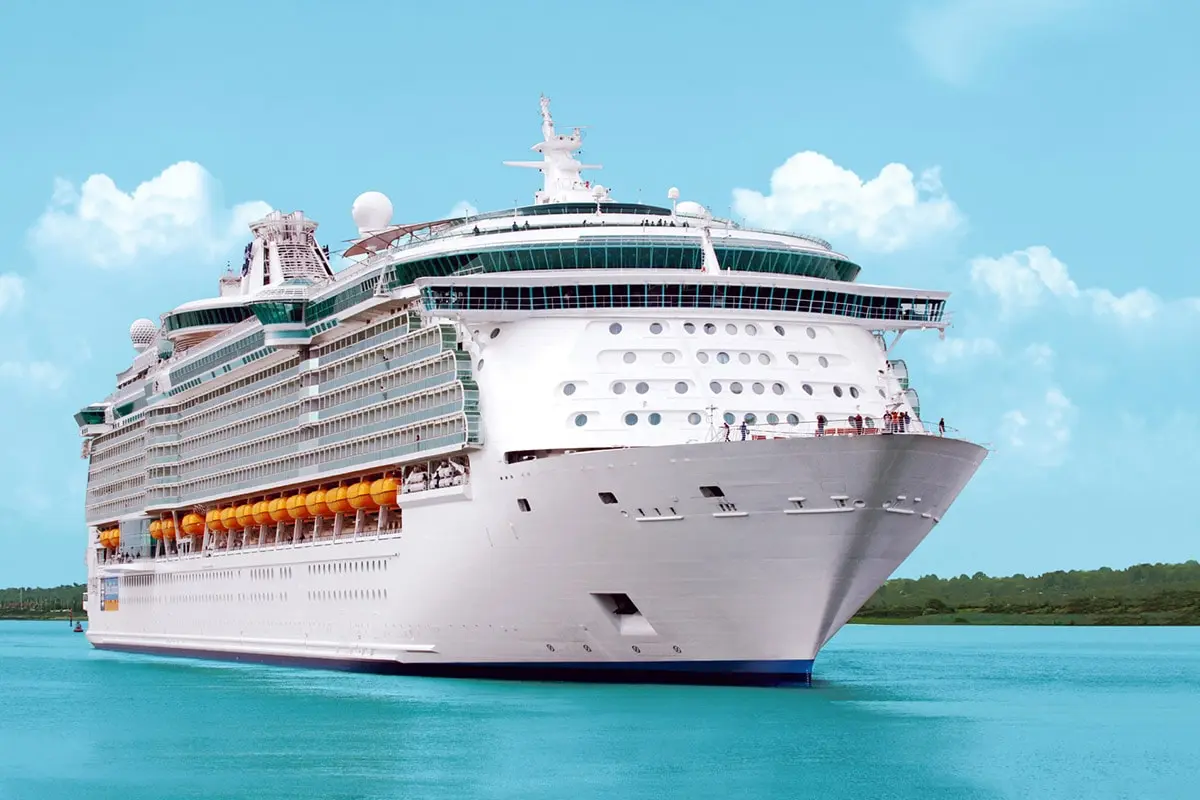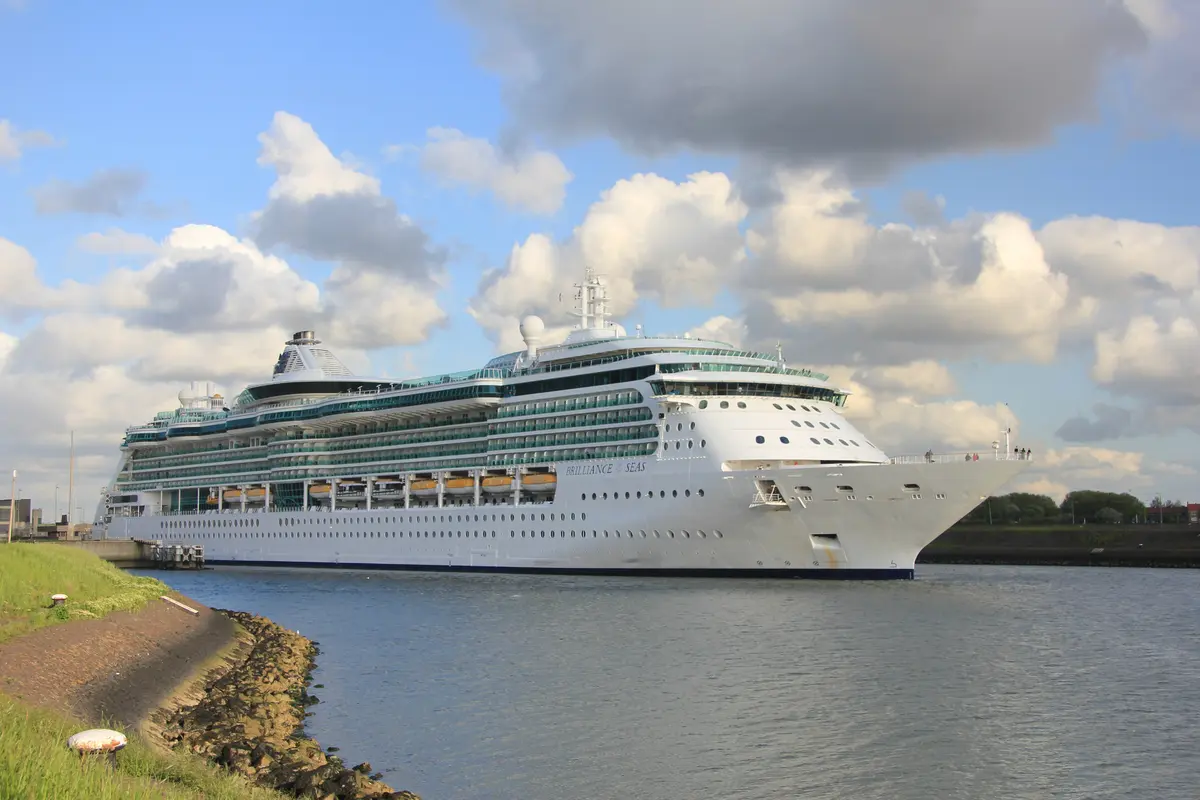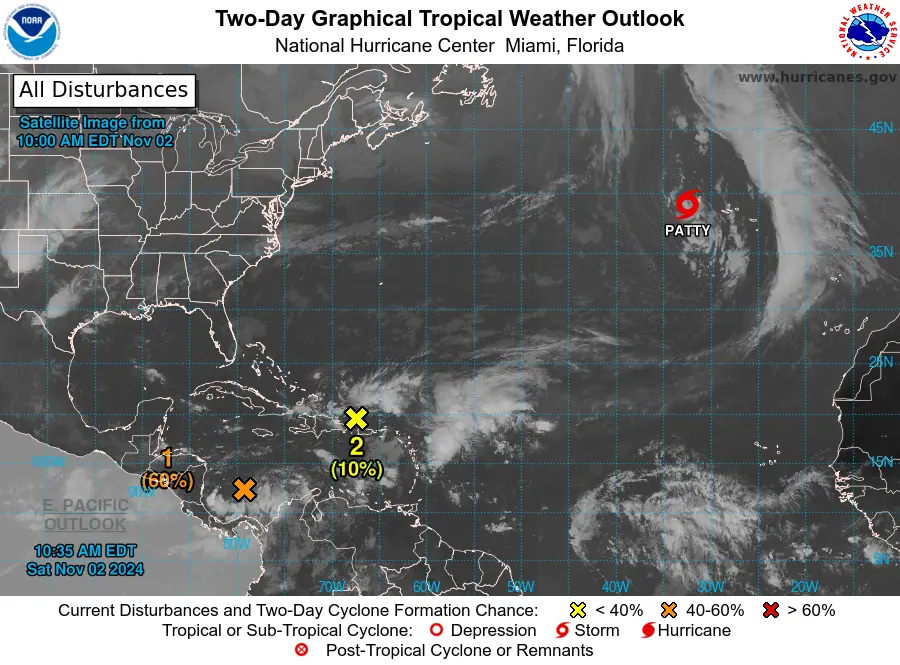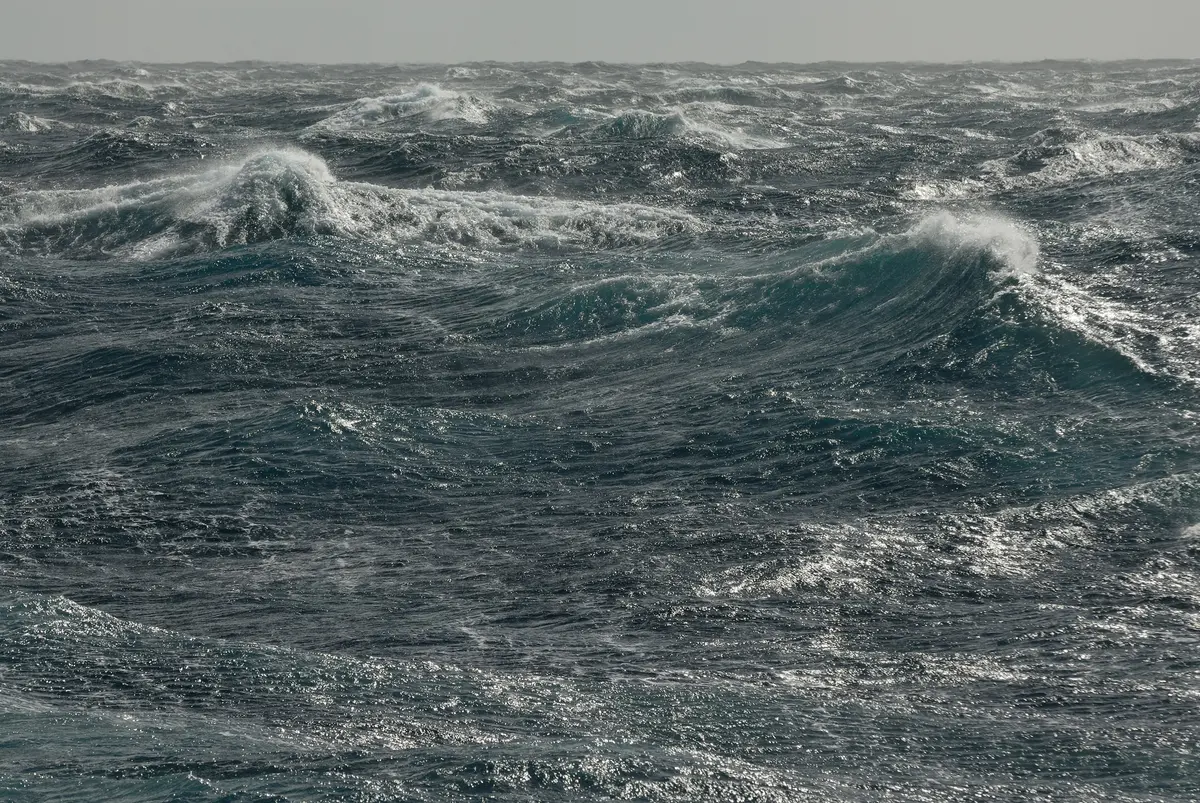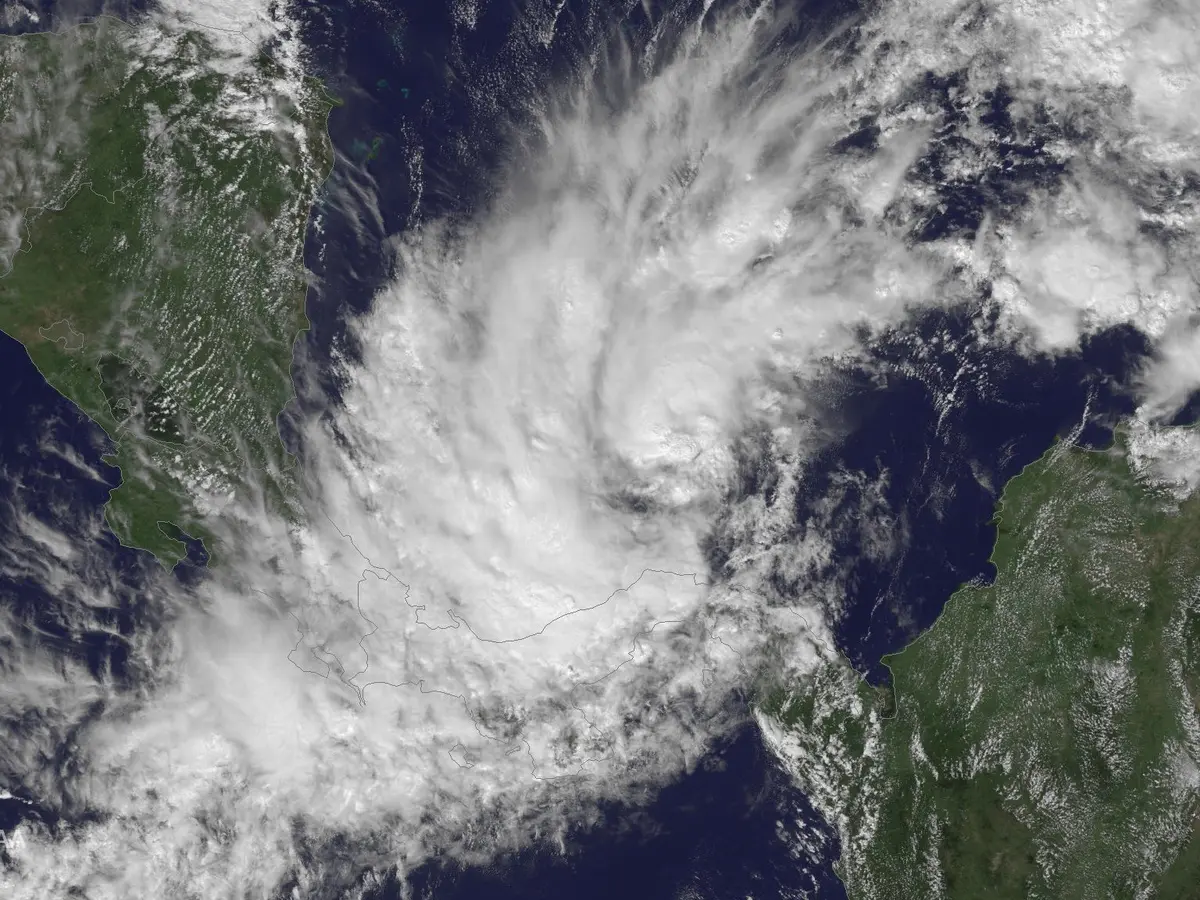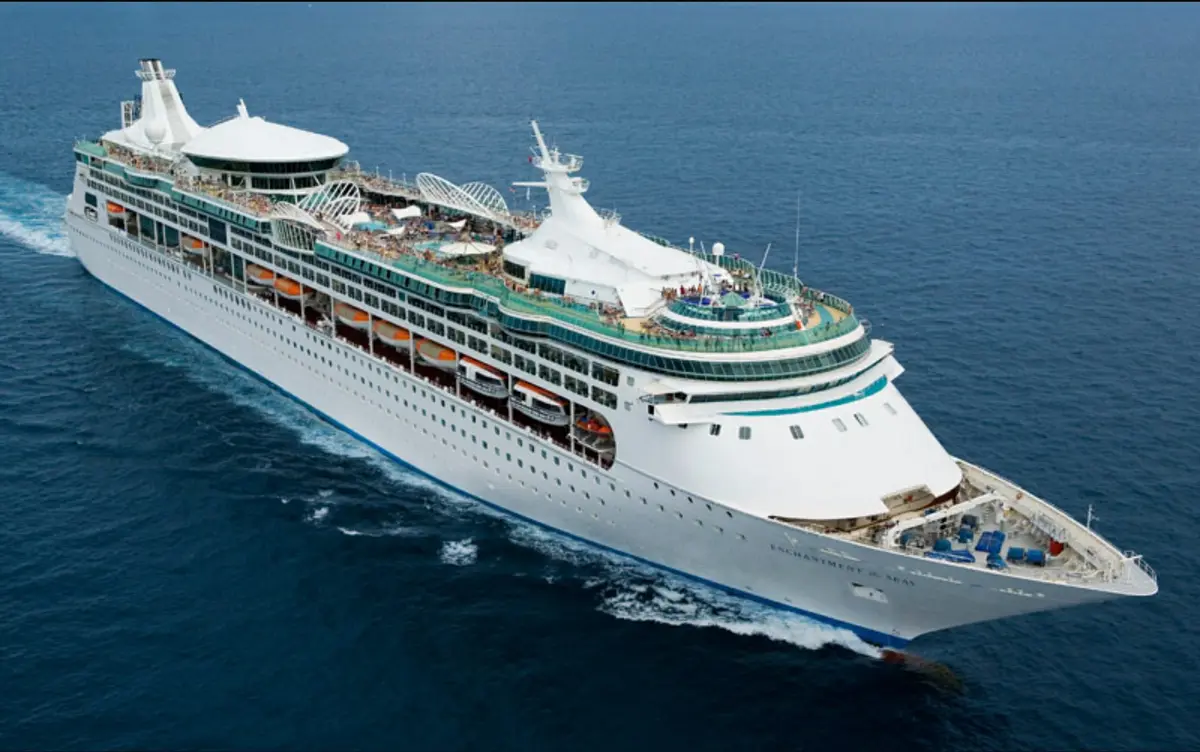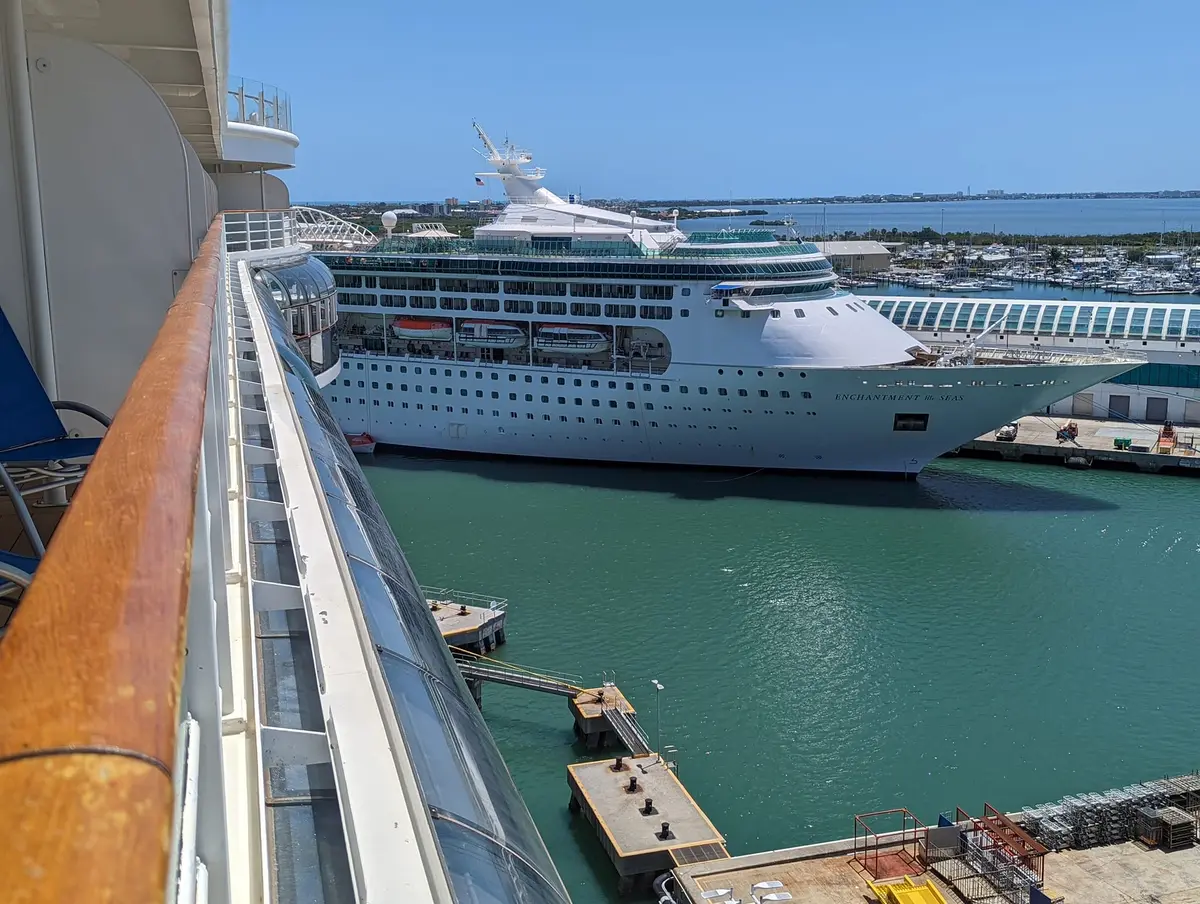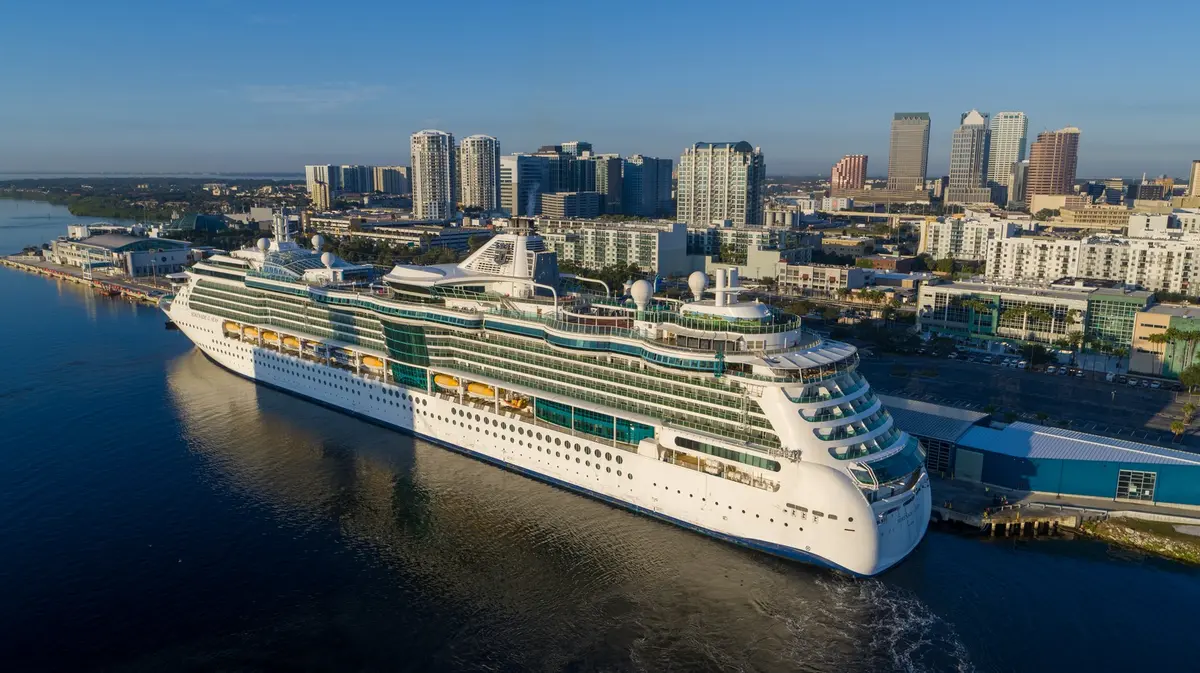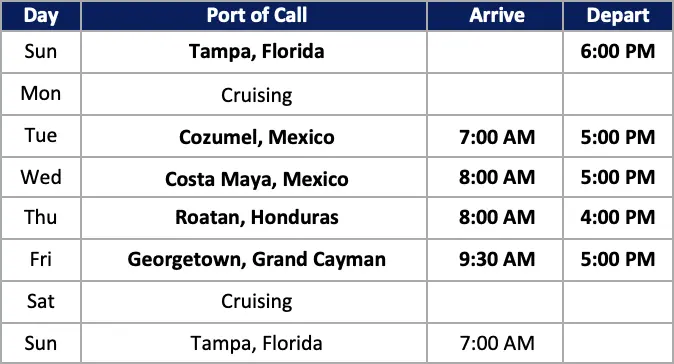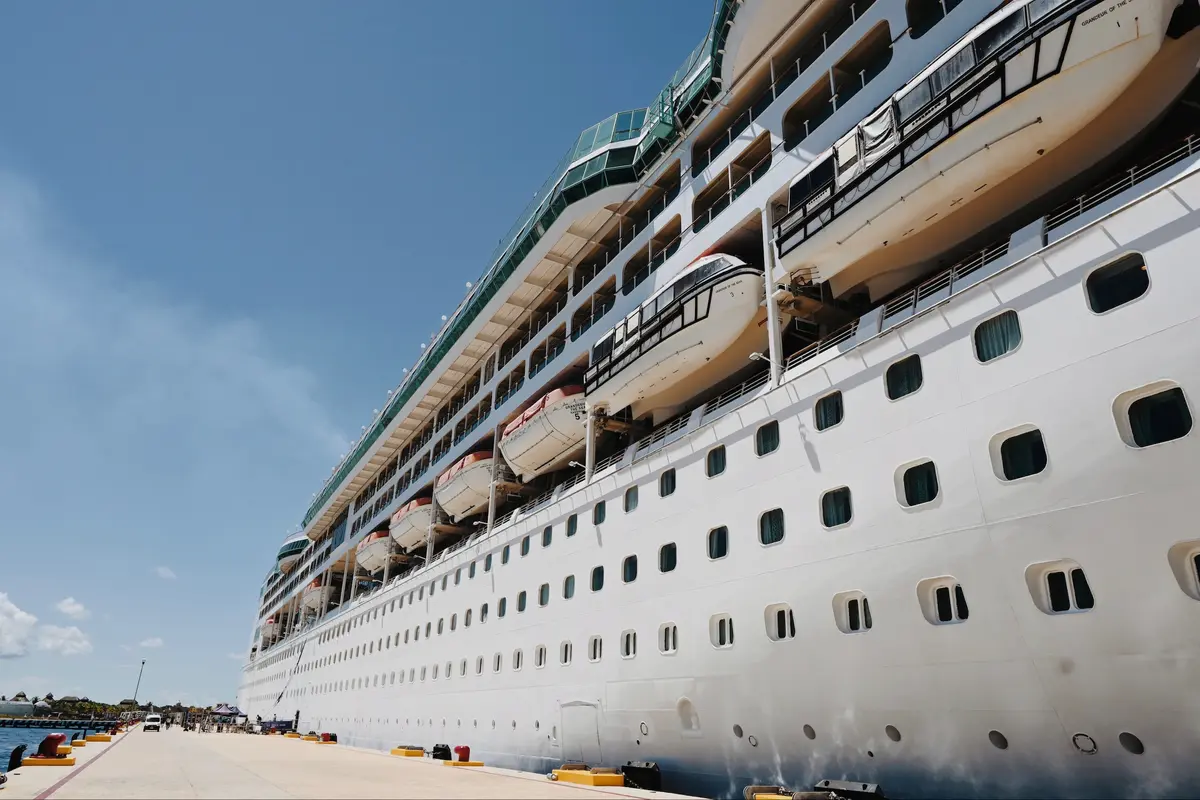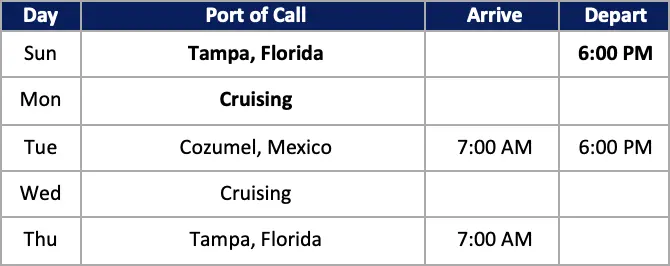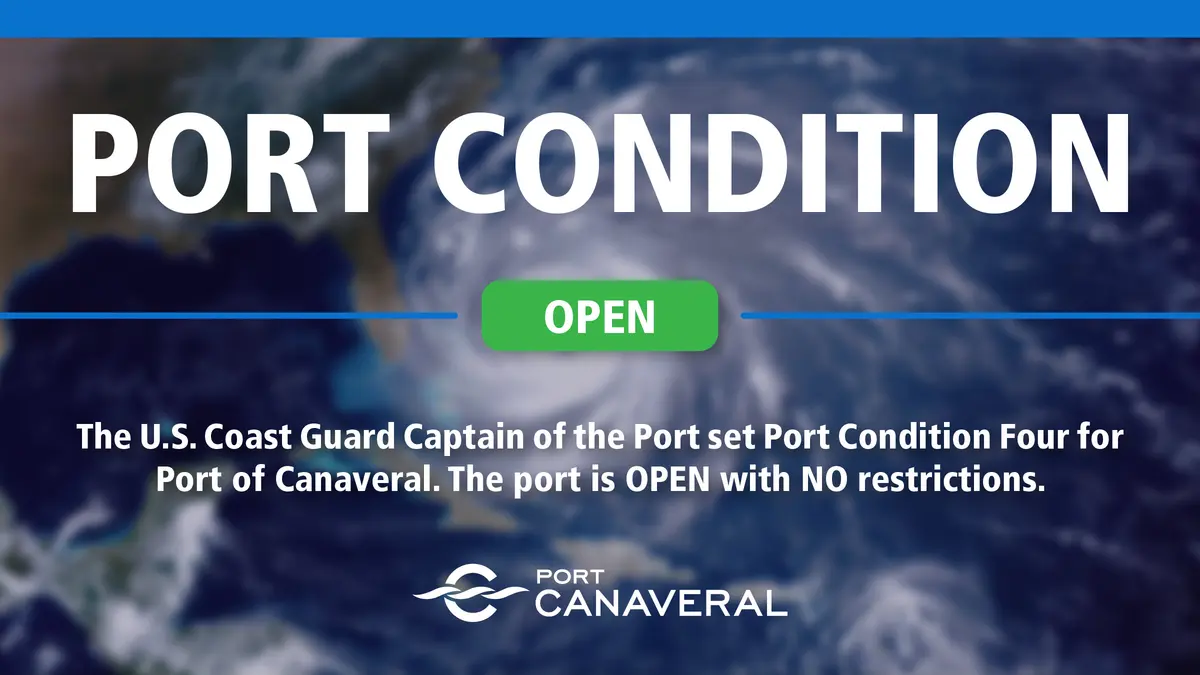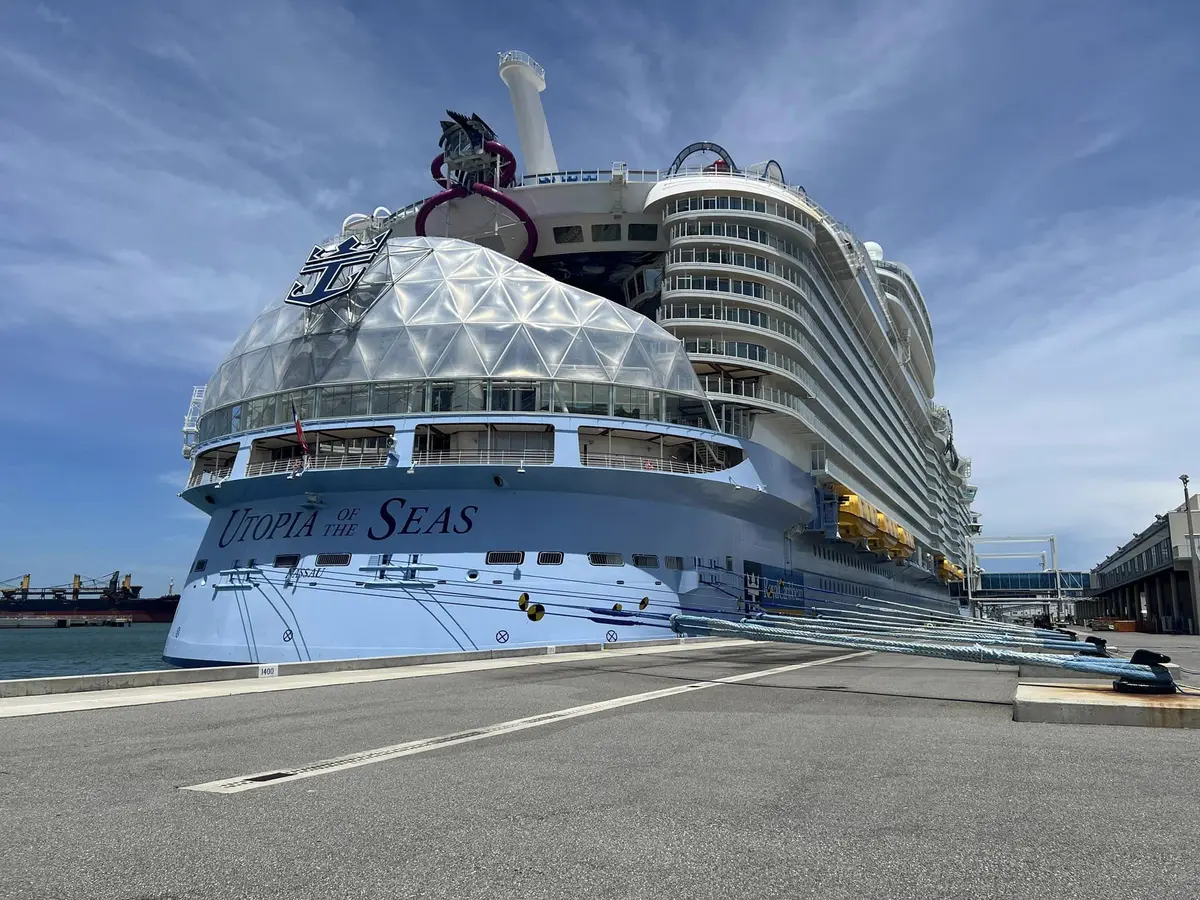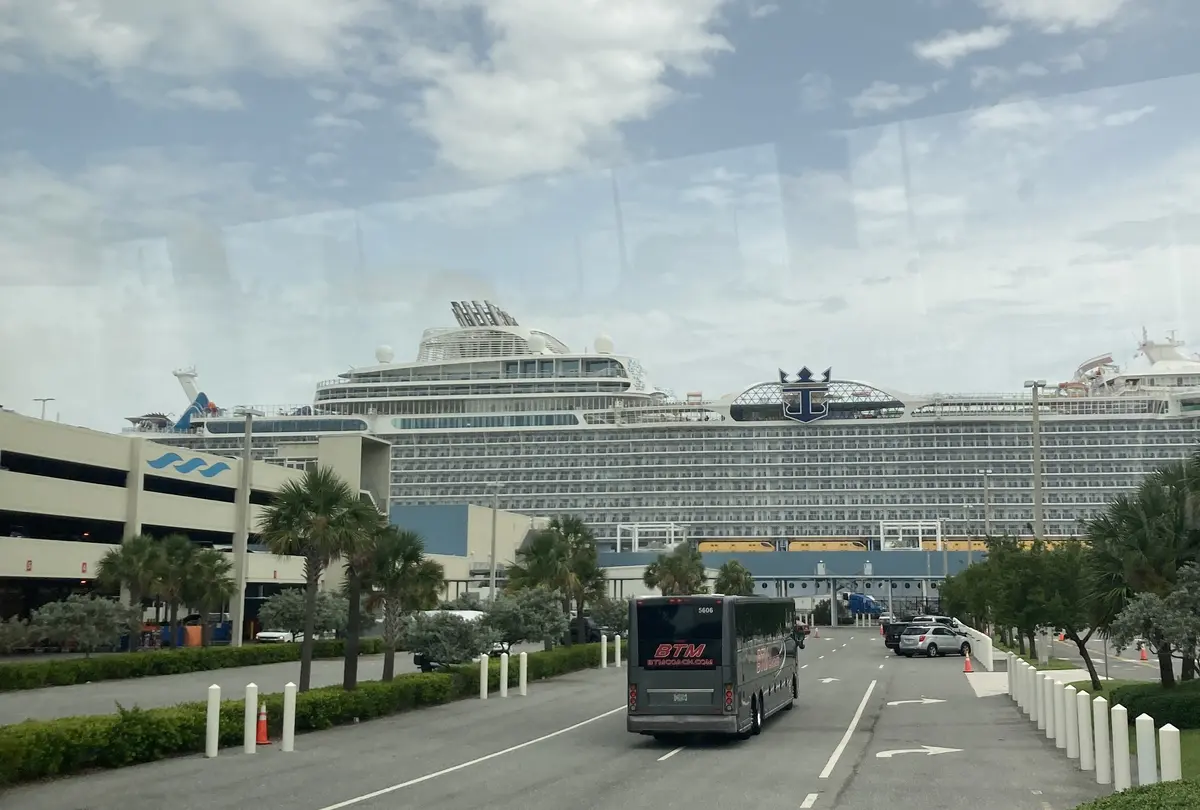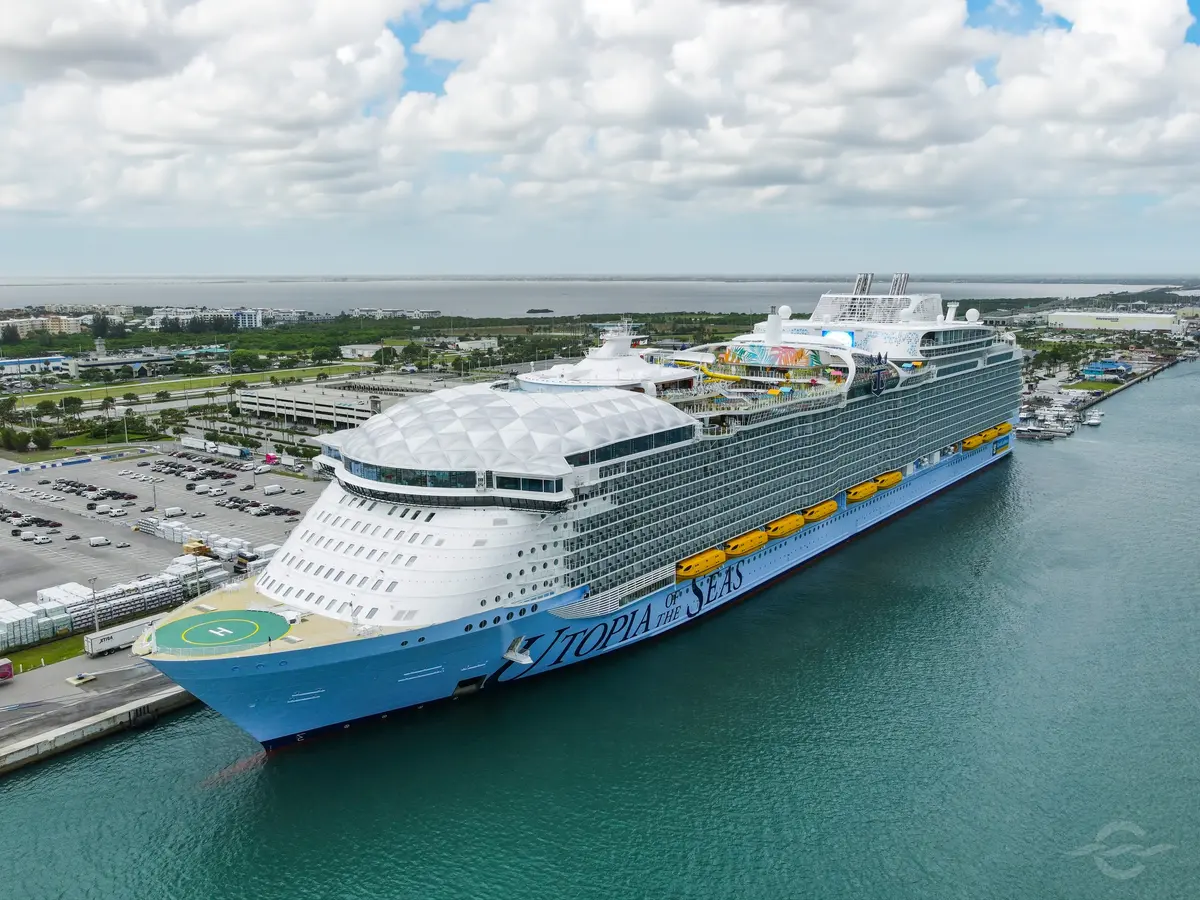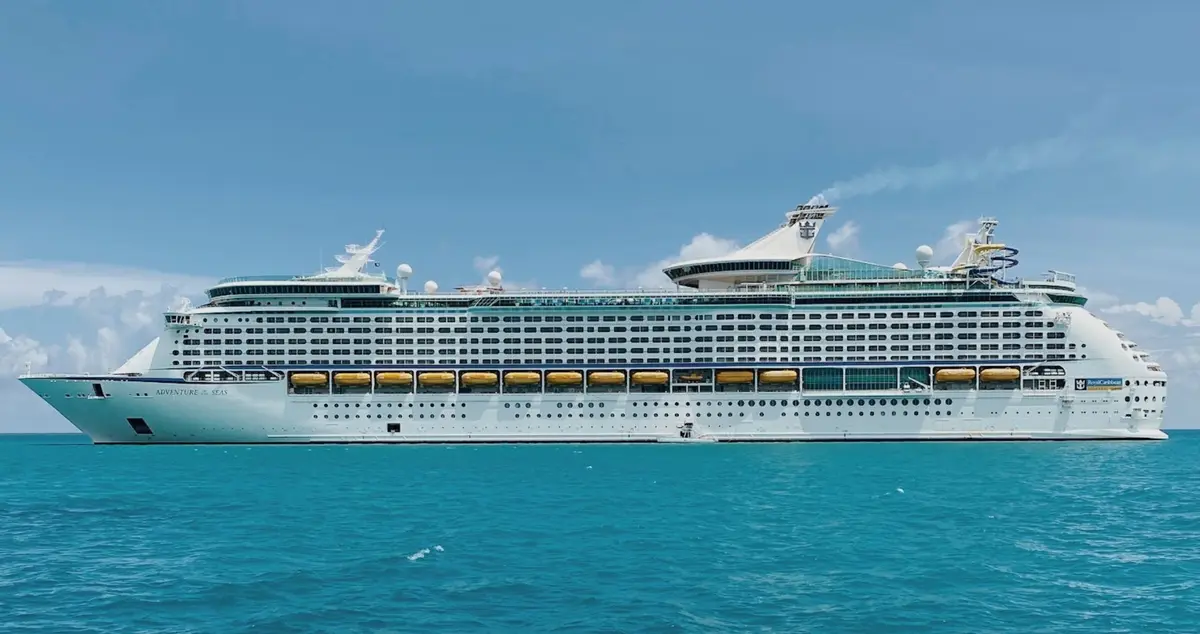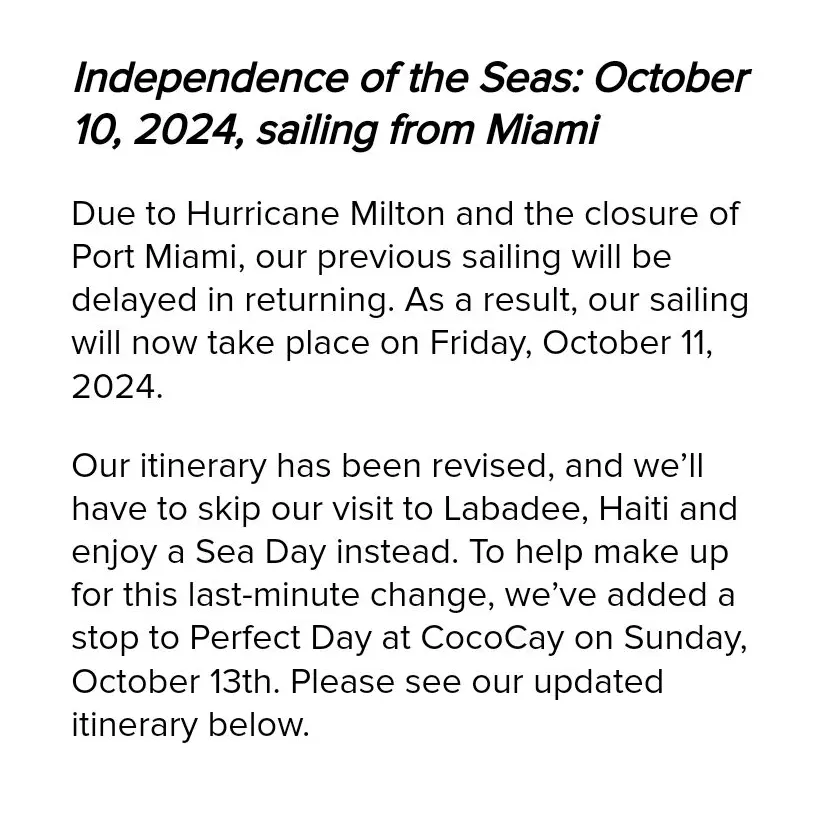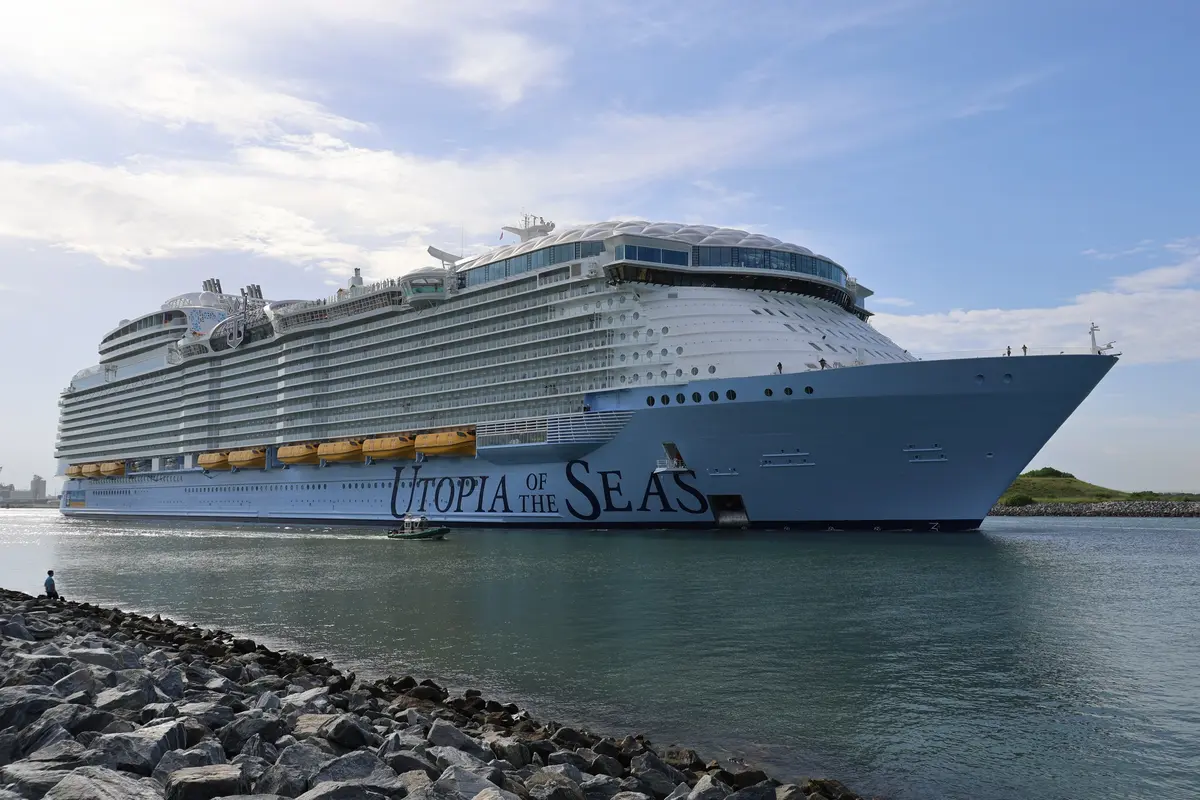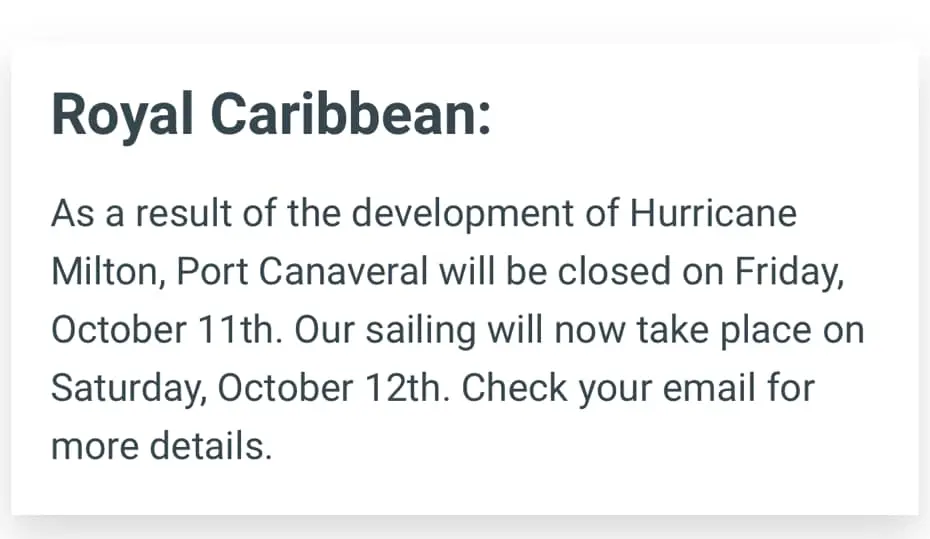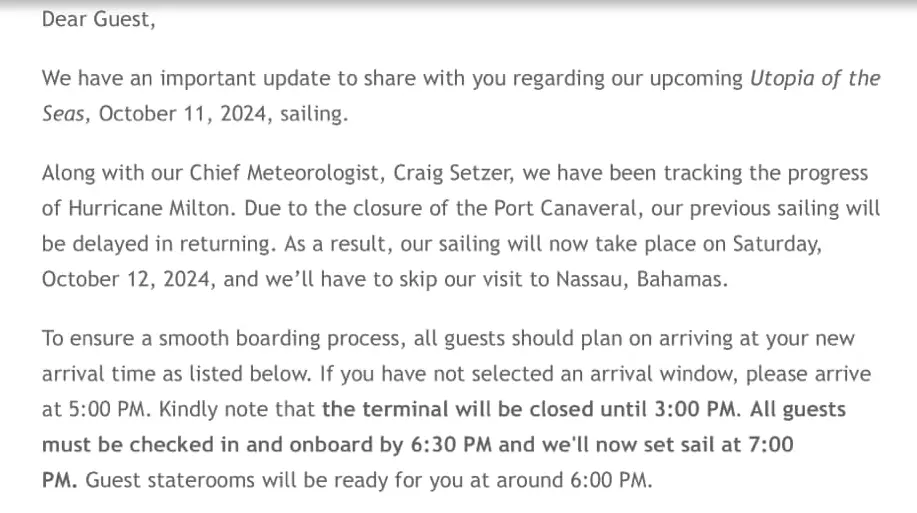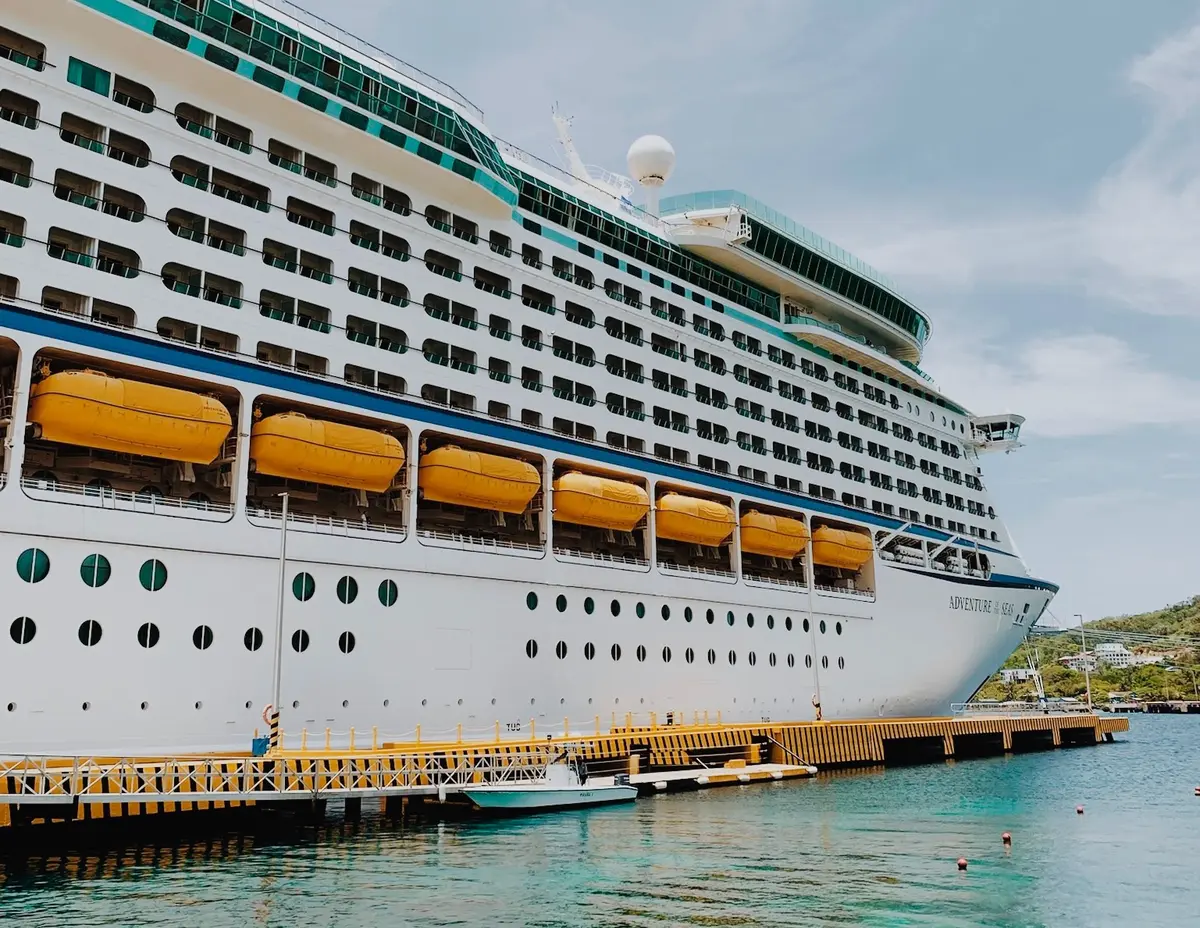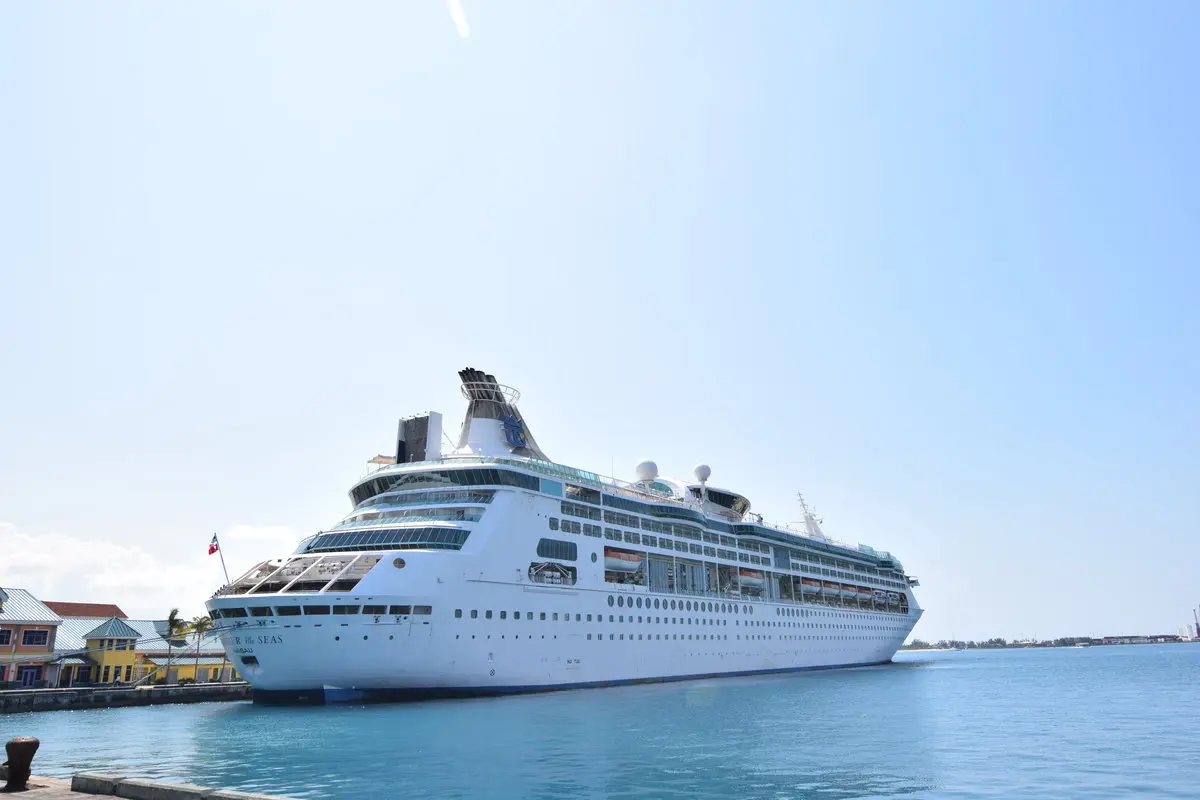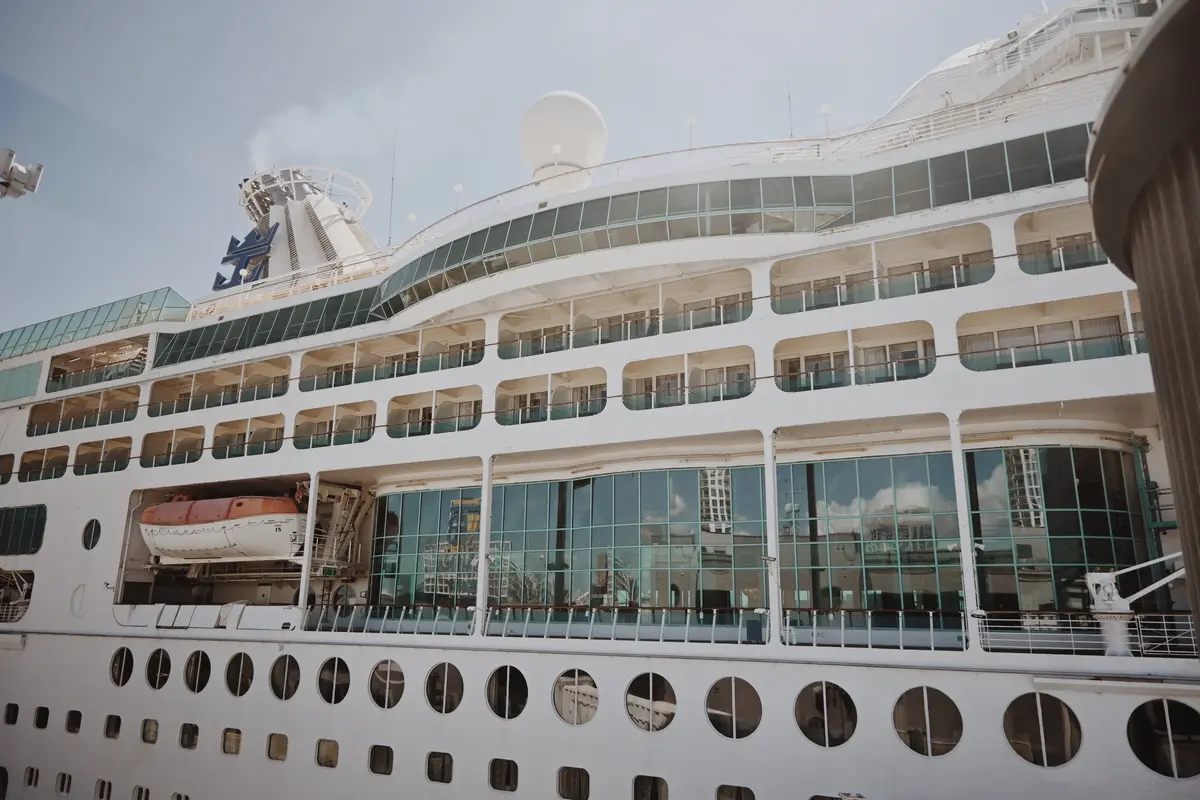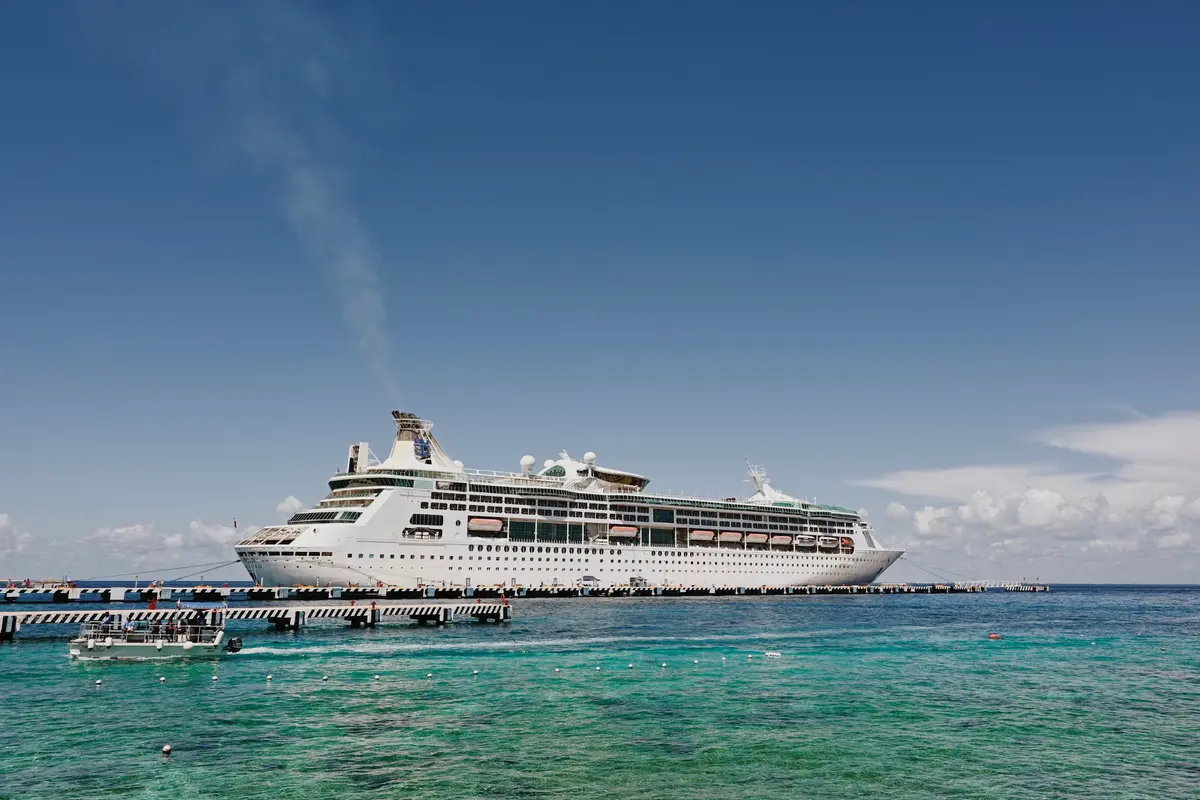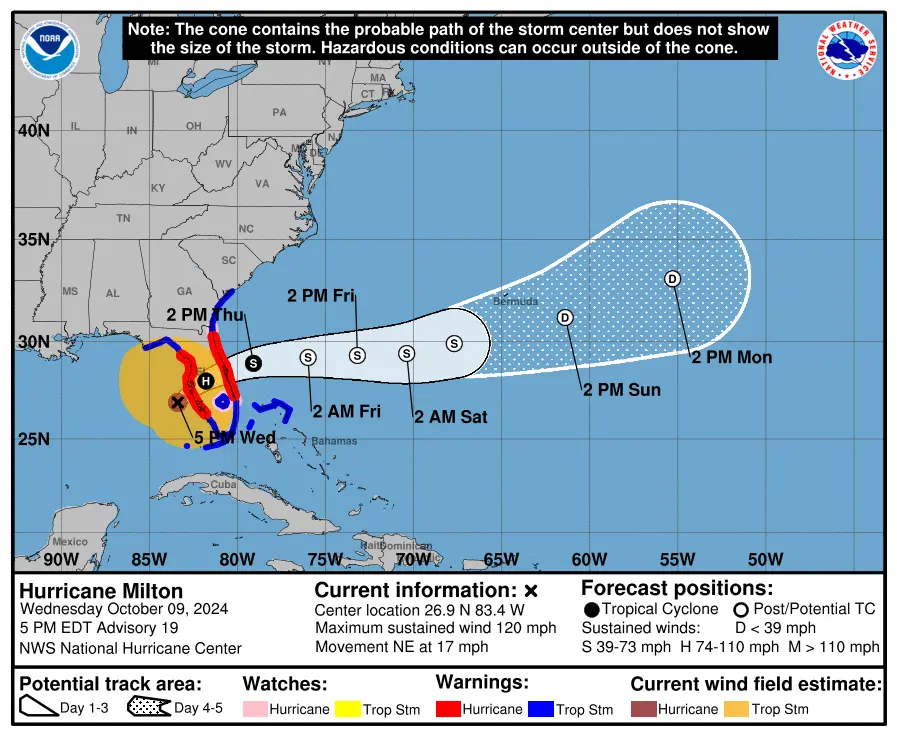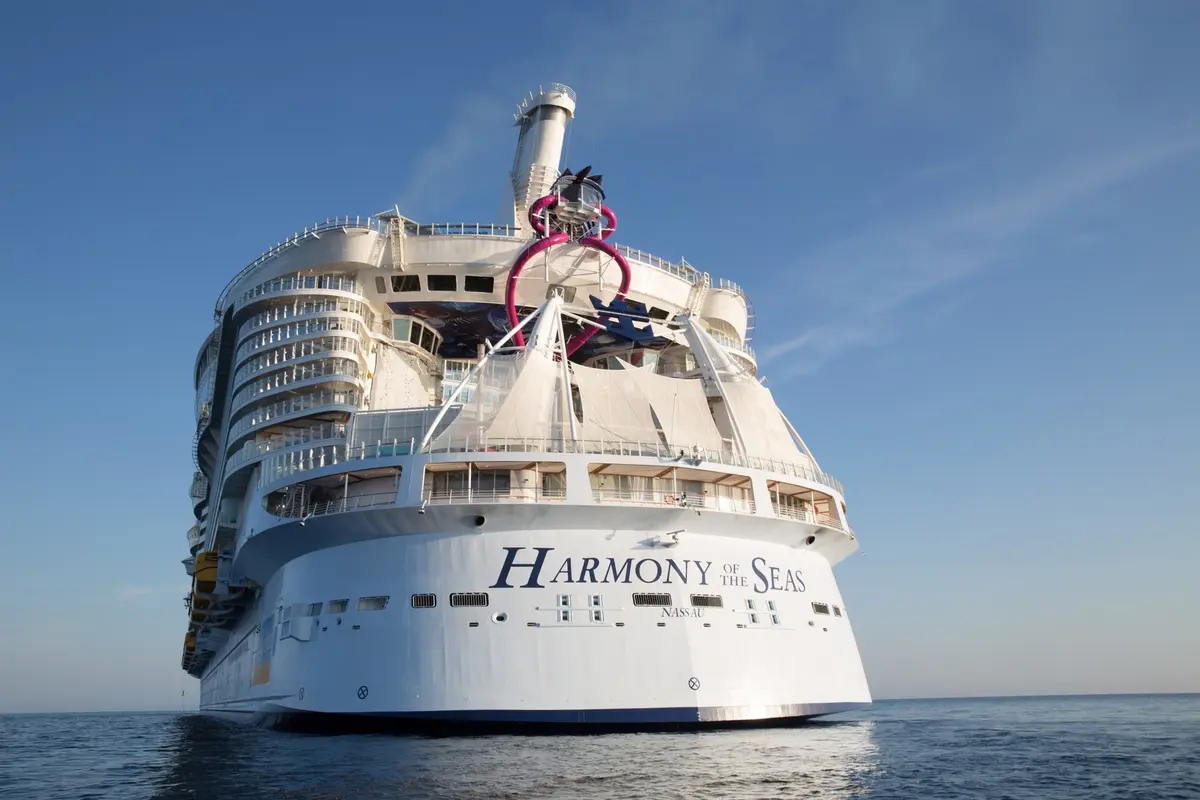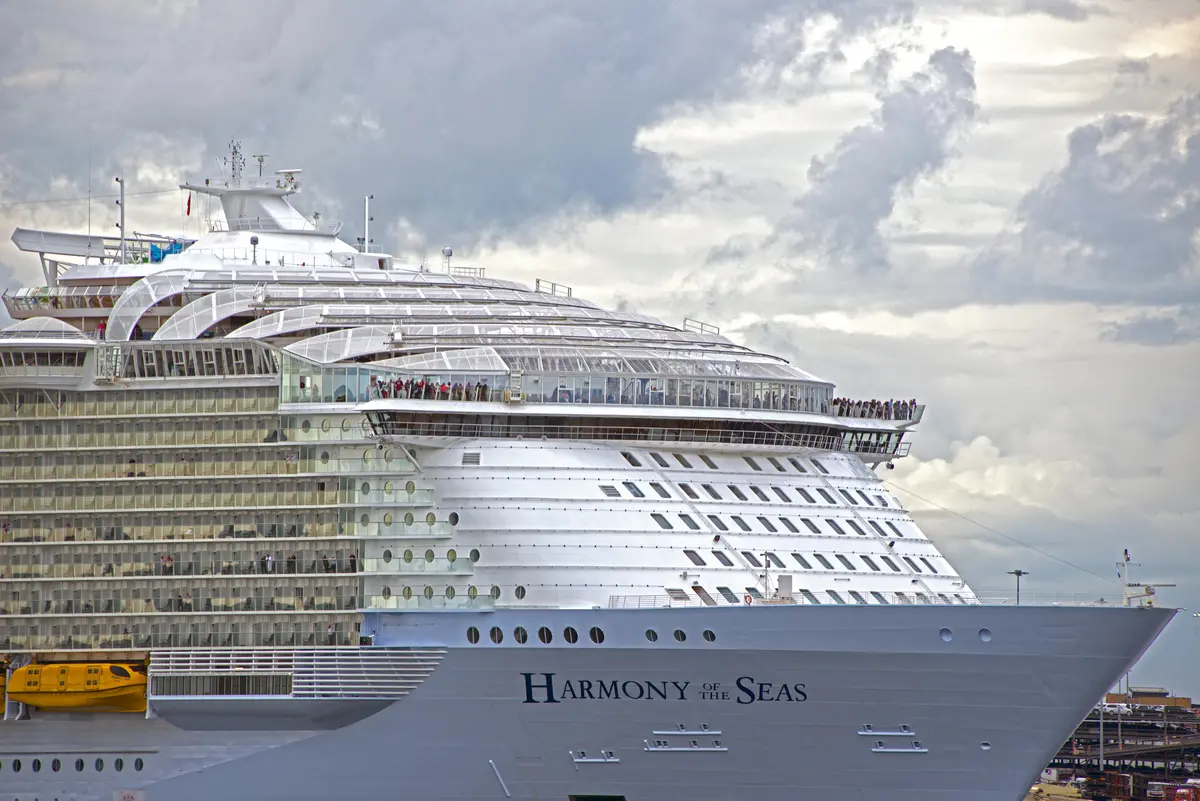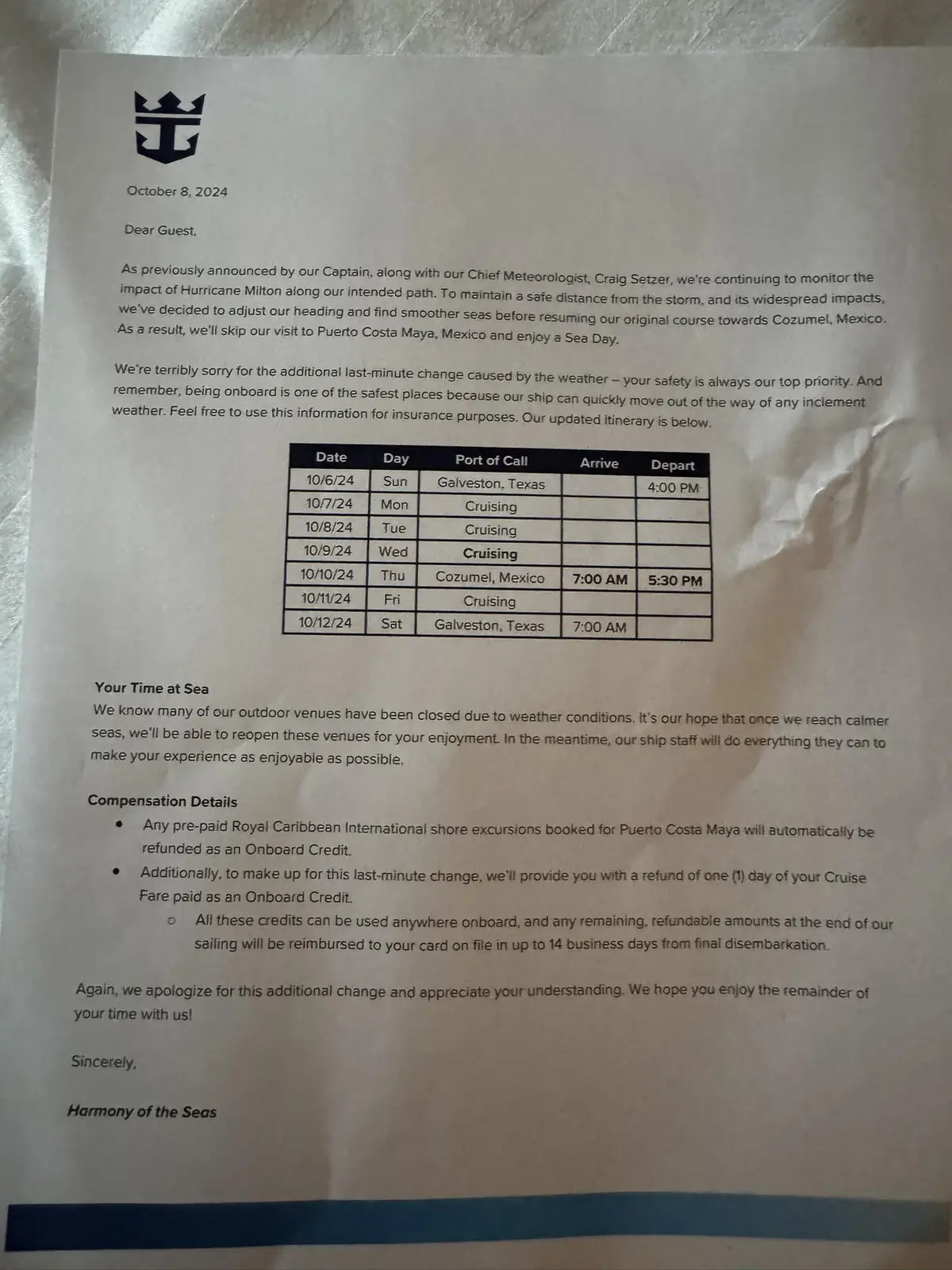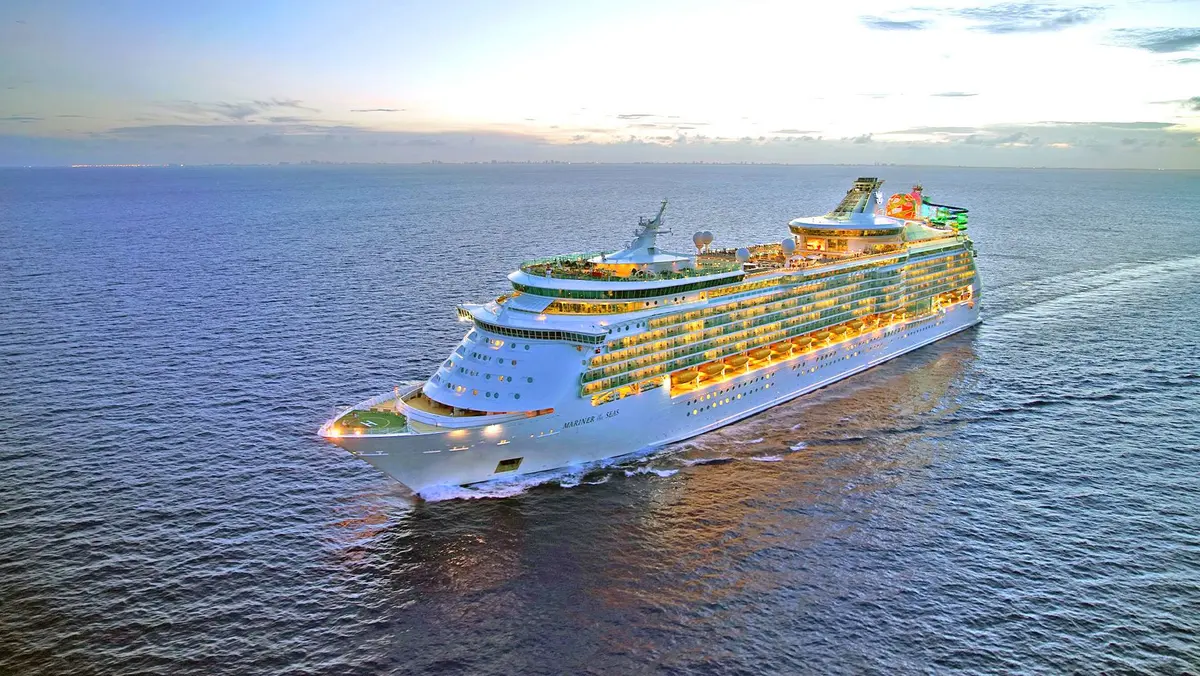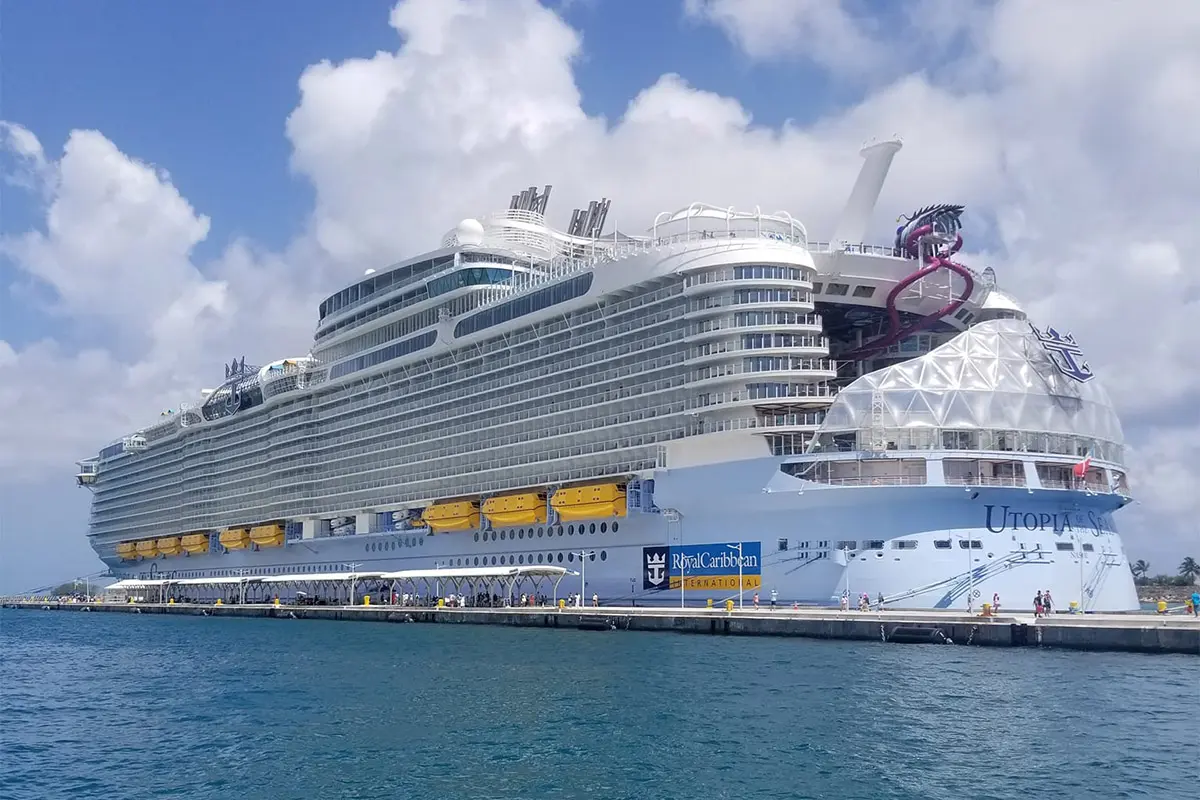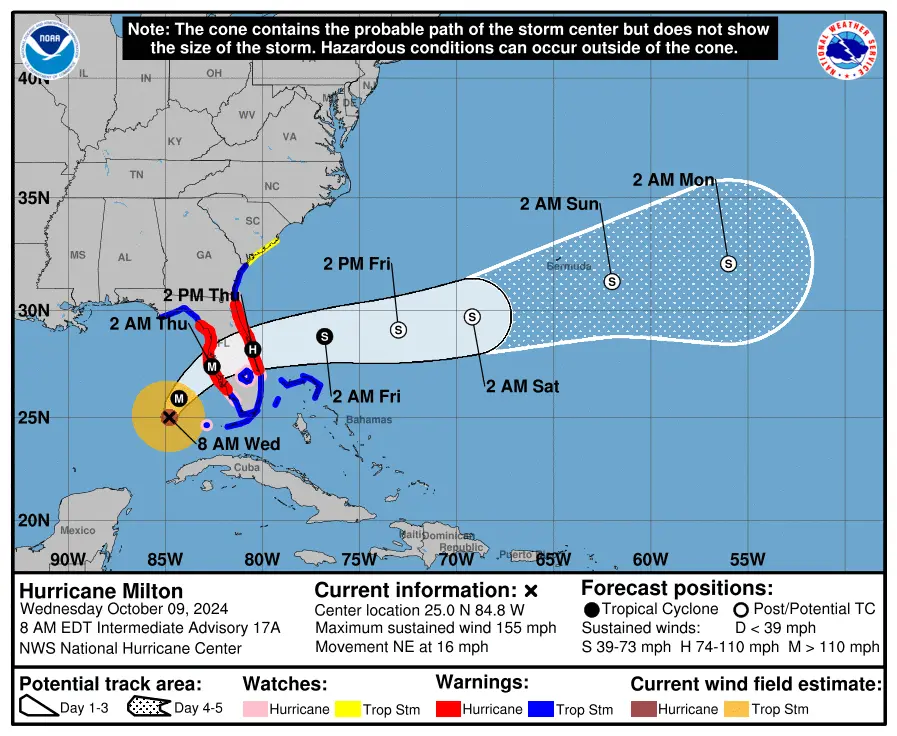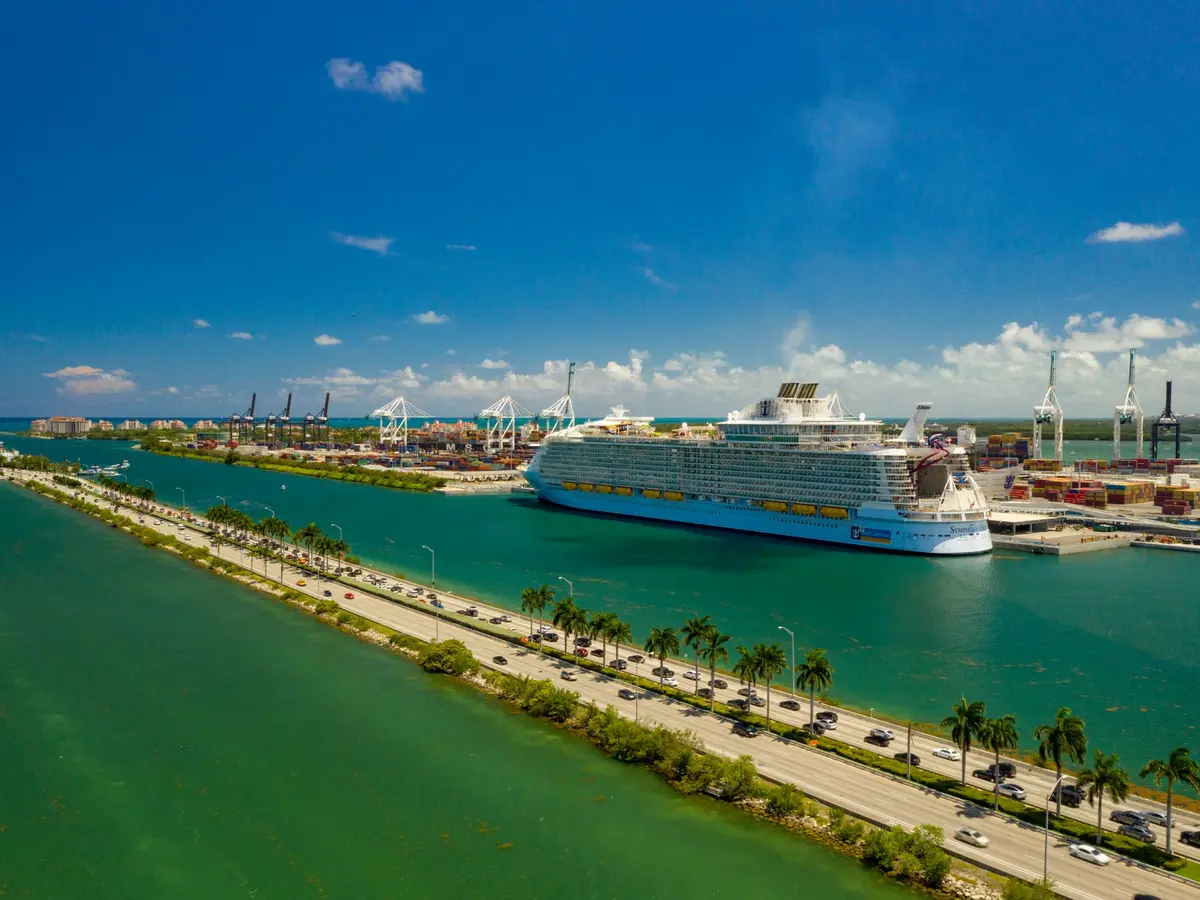Royal Caribbean, Celebrity change cruise itineraries amid Hurricane Melissa
In:Because of Hurricane Melissa, cruise lines are being forced to change Caribbean itineraries.
Hurricane Melissa has quickly become a category 5 hurricane, and it's located about 130 miles south-southwest of Kingston, Jamaica. It's path will likely take it over Jamaica and impact other Caribbean islands.
A storm this powerful in the middle of the Caribbean Sea means cruise ships will stay far away from it, and already a few changes have been posted.
Here's a list of which ships have been diverted away from the storm.
Icon of the Seas will go to the Western Caribbean instead
One of the biggest cruise ships in the world will swap a planned Eastern Caribbean voyage for one that goes to Mexico and Honduras instead.
Guests booked on Icon of the Seas received an email informing them of the change, "Our Captain, along with our Chief Meteorologist, Craig Setzer, has been tracking Tropical Storm Melissa that is expected to move through the area of our sailing."
"To safely avoid the impacts of the developing storm, we have decided to switch our itinerary to the Western Caribbean instead of the Eastern Caribbean for this sailing."
Icon of the Seas was scheduled to visit St. Maarten on Tuesday, however, the ship will now head to Cozumel on Monday from 7am to 6pm and then Roatan, Honduras on Tuesday from 9:00am to 6:30pm.
An additional sea day will be added to the voyage on Wednesday.
Plans remain for Icon to visit Perfect Day at CocoCay on Friday, before returning to Miami on Saturday.
Any pre-paid shore excursions made through Royal Caribbean will be automatically refunded in the form of onboard credit. Any remaining unused refundable amounts at the end of the sailing will be reimbursed to your credit card on file.
Odyssey of the Seas is taking a new route to avoid the hurricane
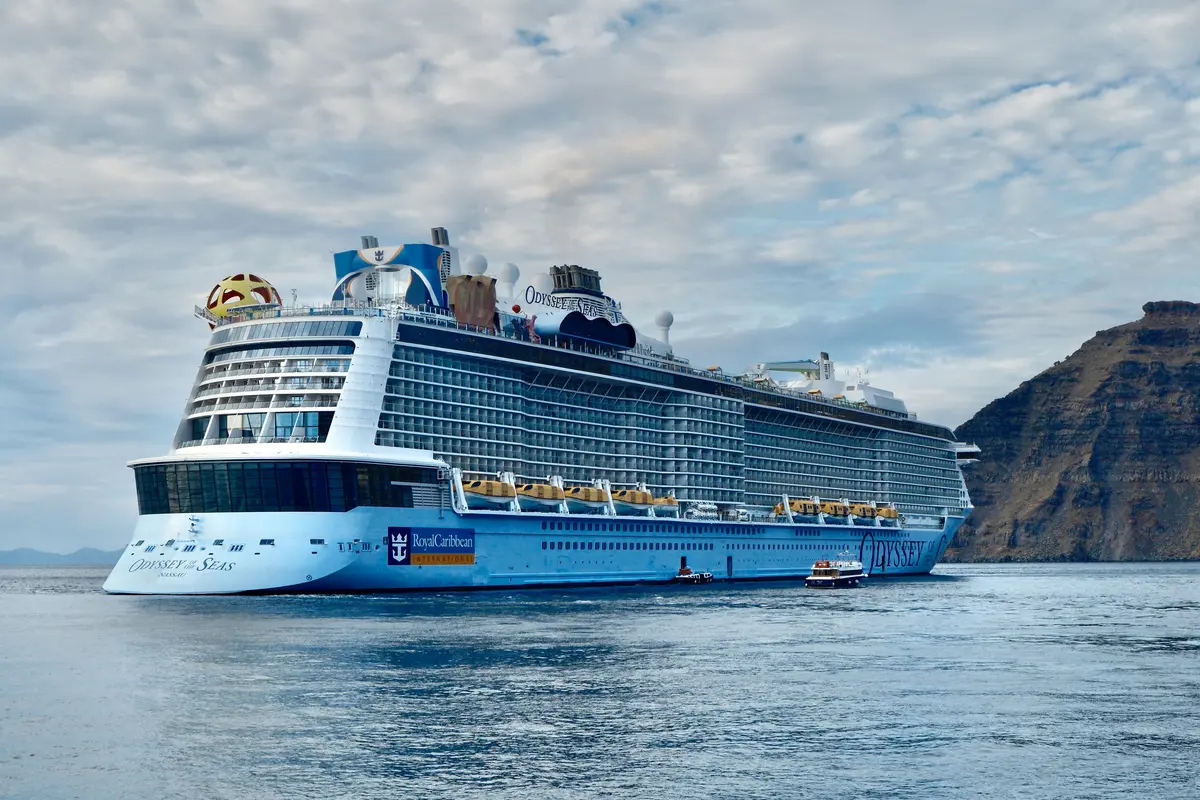
Even though Odyssey of the Seas is in Europe, her transatlantic transit is changing to avoid Melissa.
Odyssey of the Seas departed for a 14-night transatlantic cruise departing from Rome (Civitavecchia), Italy, on October 22, 2025.
The ship will skip a visit to the Azores on October 30 and will instead go to Santa Cruz, Tenerife on October 29th.
This change will allow Odyssey to cross in the South Atlantic and avoid both Hurricane Melissa and another low pressure system.
Freedom of the Seas avoided Melissa before it became a major hurricane
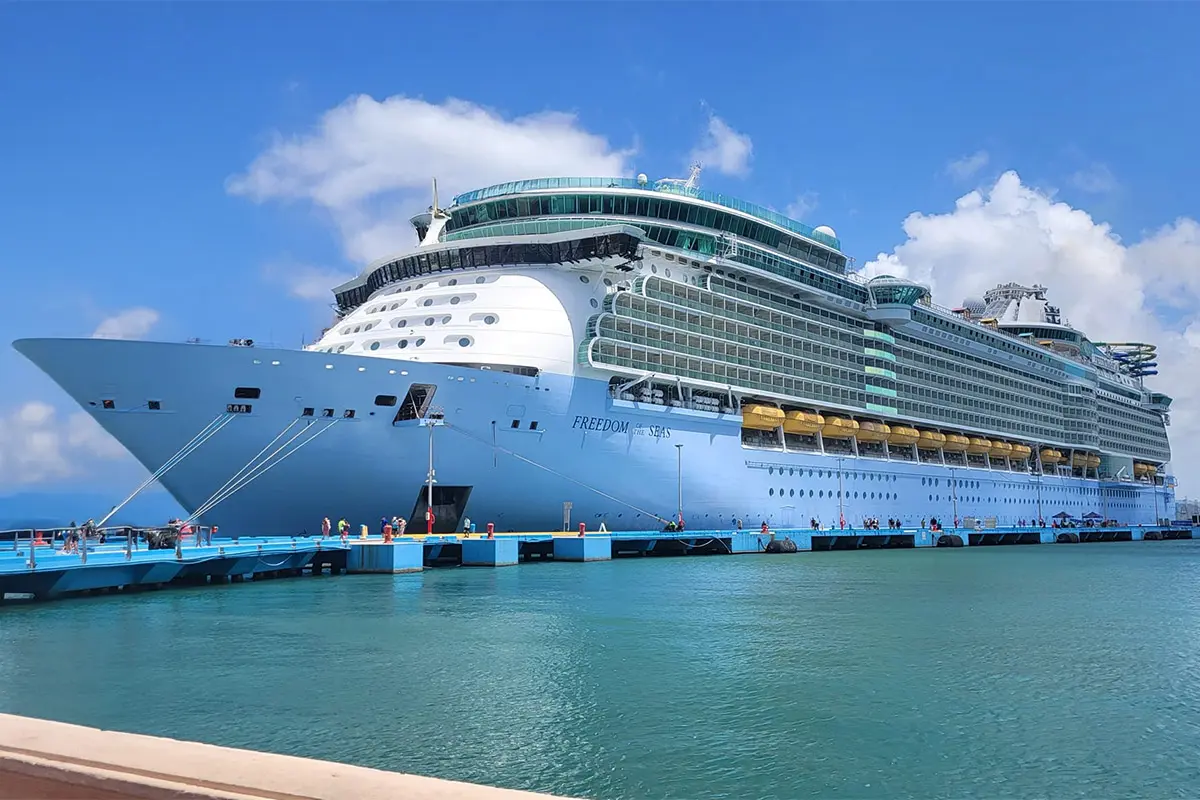
Freedom of the Seas just finished a sailing that began on October 23, but it changed plans before Melissa reached major strength.
The October 23rd sailing replaced a visit to Grand Turk in Turks and Caicos, and instead went to Puerto Plata, Dominican Republic.
Vision of the Seas is skipping a visit to Nova Scotia
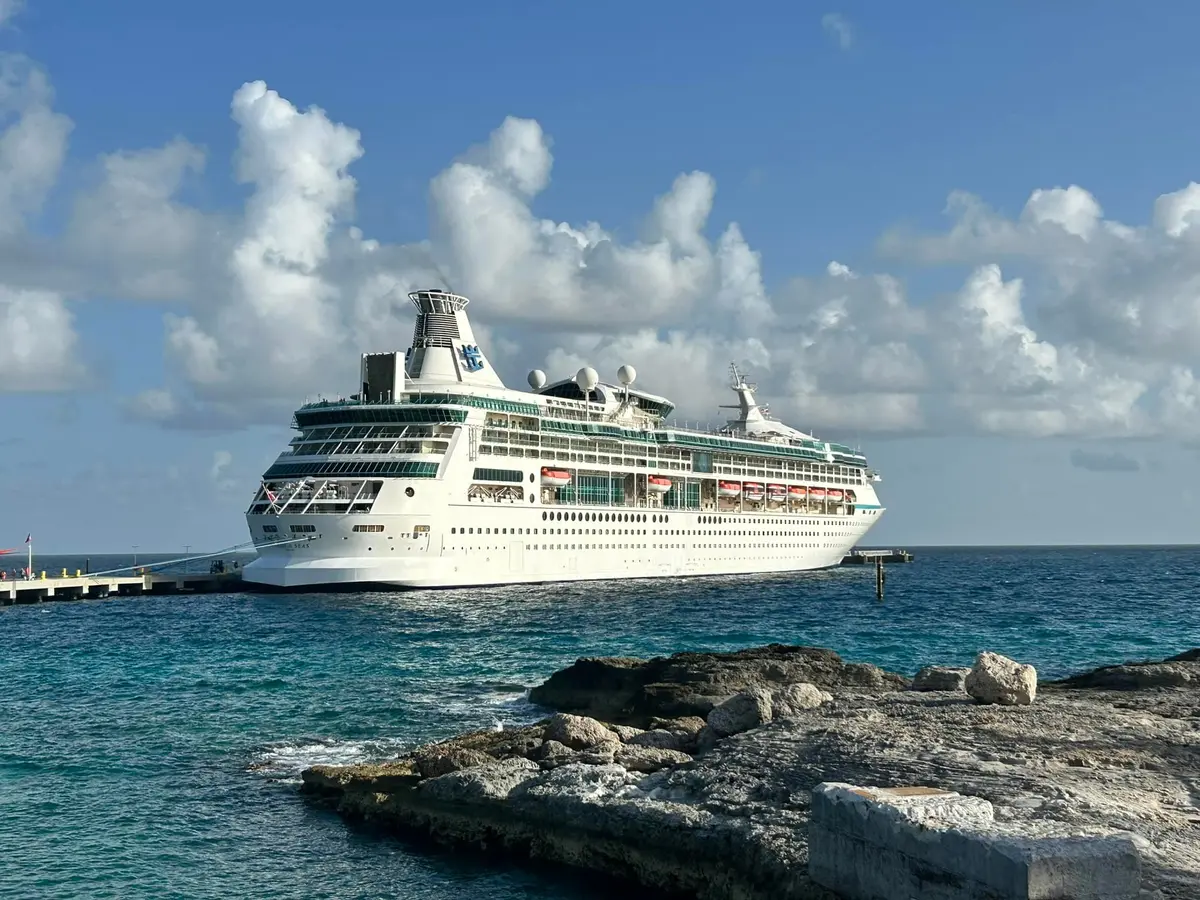
"Unfavorable weather conditions" has caused Royal Caribbean to change a visit to one port in Canada for Vision of the Seas.
It's unclear if this change is related at all to Hurricane Melissa, but a visit to Sydney, Nova Scotia on Monday is now being changed.
Vision will go to Halifax a day early in order to stay there overnight.
"Kindly note, this is an evolving situation, and we will continue to evaluate the weather which may impact our schedule departure from Halifax," a letter to passengers onboard read.
"Please know, being onboard is one of the safest places because our ship can quickly move out of the way of any inclement weather."
Vision of the Seas is due back in Baltimore on Saturday.
Celebrity Beyond is also changing to the Western Caribbean
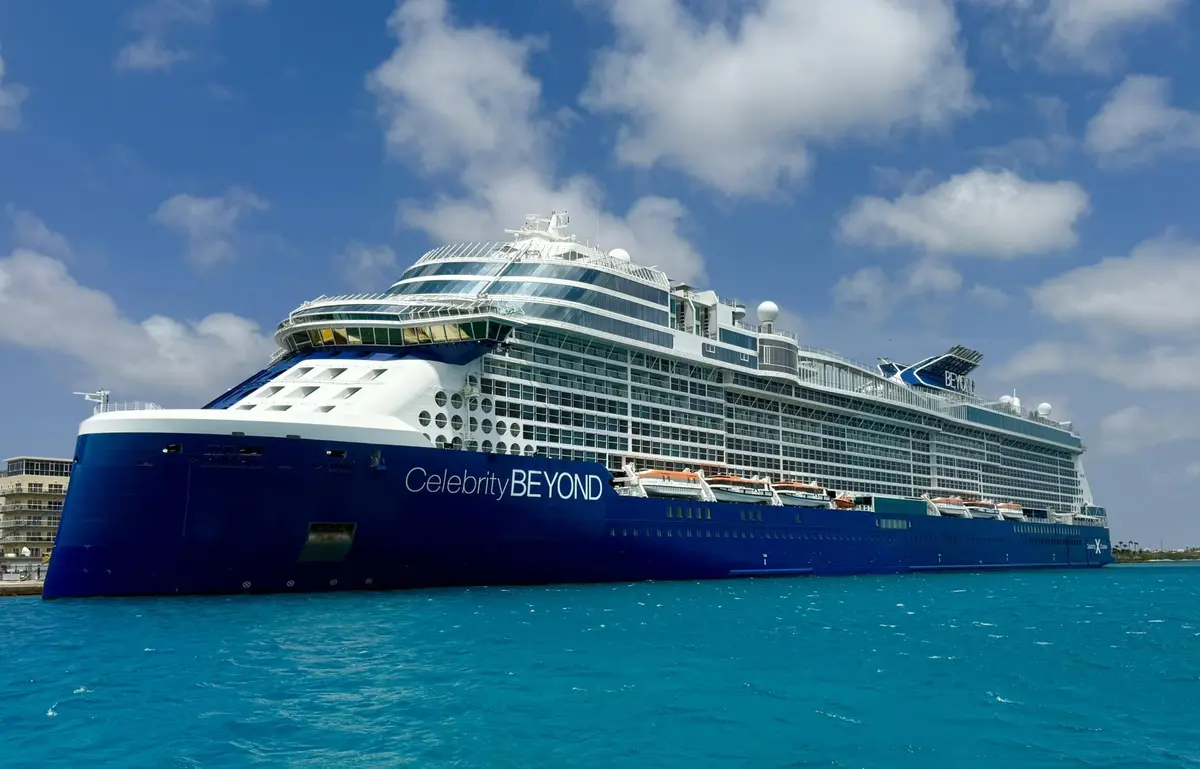
Just like Icon, Celebrity Beyond will swap out itineraries to avoid the bad weather.
An email to guests booked on the sailing read, "To safely avoid the impacts from the storm, we have decided to switch our itinerary to the Western Caribbean instead of the Eastern Caribbean for this sailing."
Instead of going to the Dominican Republic, St. Thomas, and St. Kitts, Beyond will visit Costa Maya, Mexico; Belize City, Belize; and Roatán, Honduras.
Hurricane Melissa is tracking over Jamaica, Cuba and Bahamas
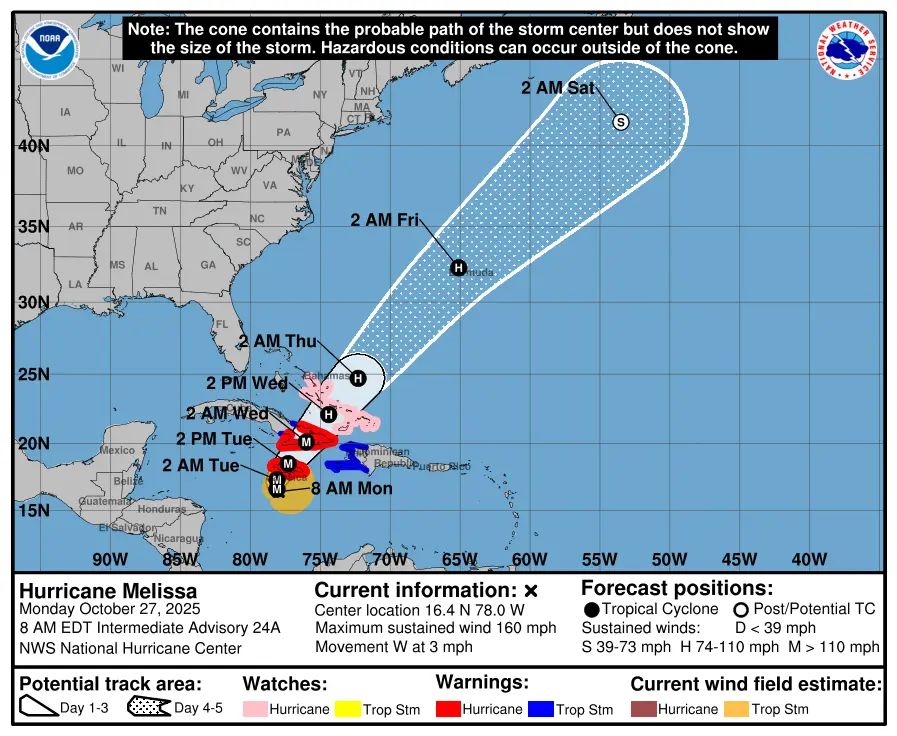
Weather experts believe Melissa will make landfall over Jamaica, and then take it on a track across eastern Cuba before heading out to sea.
While the storm is not expected to impact the east coast of the United States, it's going to be a menace for anything else in its path.
It has maximum sustained winds of 160 mph and was moving at a slow 3 mph.
Royal Caribbean meteorologist is watching for "wobbles"
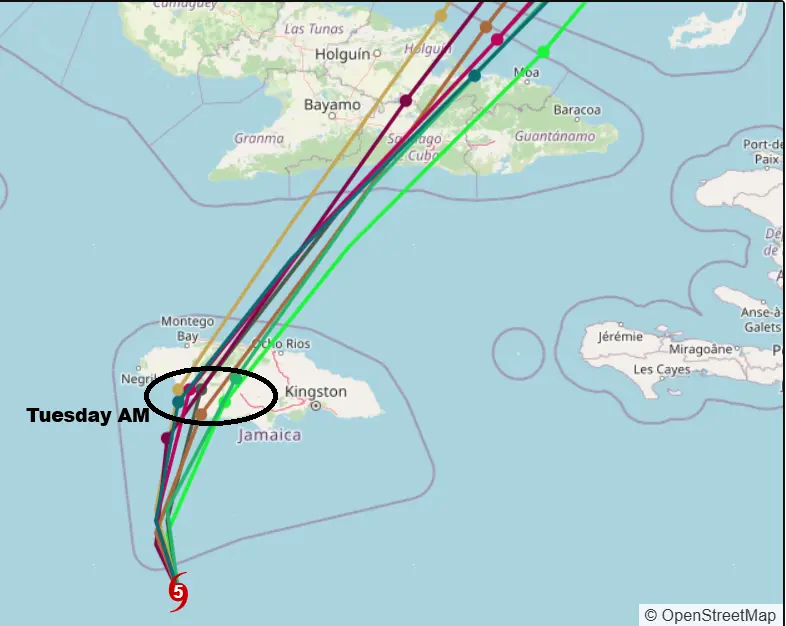
Royal Caribbean employs its own meteorologist, Craig Setzer, and he posted an update on Monday about what he's looking at for the path of the hurricane.
Mr. Setzer is analyzing the storm's movements to know how much of an impact it will have on Jamaica, "we are looking at tens of miles which will make a big difference for folks in Jamaica. Now is the time tiny storm movements & wobbles make a big difference. Now is the time we get myopic with the storm."
After passing Jamaica, he expects it to continue a move north, "Hurricane Melissa continues to creep to the west this morning, but all models agree that motion will soon stop, and northward motion will begin."
"That west position and the eventual northward heading of Melissa will help determine where the core of the hurricane strikes but we may not know that until later today or tonight.:
Unfortunately, it does not look like much weakening will occur before landfall. Watching closely."






